About IDI
Our Cross-Cutting Priorities
Our Results
Meet the IDI Board
IDI's Board is composed of ten members from different supreme audit institutions. Get to know them better in our "Meet the Board" series.
For Immediate Release
October 31, 2025: Sharm el-Sheikh, Egypt – The International Organisation for Supreme Audit Institutions (INTOSAI) today passed a motion recognising PESA as a valuable professional qualification for SAI Auditors.
In a special side event to the International Congress for Supreme Audit Institutions (INCOSAI), the INTOSAI Development Initiative (IDI) today reaffirmed its commitment to strengthening the competence and professionalism of Supreme Audit Institution (SAI) auditors through the Professional Education for SAI Auditors (PESA) qualification.
"In today’s rapidly changing governance landscape, the credibility and impact of SAI auditing depend on the competence and professionalism of our auditors," said Karl Eirik Schjøtt-Pedersen, Chair of the IDI Board, during the event. He also credited Dr. Margit Kraker, INTOSAI Secretary General, for supporting the INTOSAI co-branding of PESA, calling it “a major step in enhancing the credibility of the qualification.”
PESA is built on a robust competency framework, integrating theoretical learning with practical experience and ethical foundations. The qualification combines 170 hours of digital learning with an Initial Professional Development Portfolio, ensuring that auditors gain both the knowledge and contextual experience essential to deliver high-quality audits.
Since its launch, PESA has reached over 2,800 SAI auditors from 128 SAIs, with 501 graduates — more than half of them women. The qualification is currently available in English and Spanish, with the newly launched Arabic version and a French version planned for 2026.
Looking ahead, IDI is exploring external recognition and accreditation to position PESA among globally recognised professional qualifications. The introduction of ISSAI 150 on Auditor Competence by INTOSAI underscores the importance of professional qualification for SAI auditors, and PESA serves as a transformative mechanism to achieve it.
The INTOSAI Governing Board approved a motion for INTOSAI recognition of PESA and support for its external recognition and accreditation, which will be presented for endorsement at INCOSAI 2025. The proposed motion
states:
“INTOSAI recognises IDI’s Professional Education for SAI Auditors (PESA) as a valuable professional qualification for SAI audit professionals and supports IDI’s efforts for external recognition and exploration of possible external accreditation to enhance the professional credentials of the PESA qualification.”
Mr. Schjøtt-Pedersen expressed deep appreciation to all SAIs, experts, and stakeholders who contributed to this inclusive and collaborative global effort and concluded the event with a call to action : “Let us come together
to shape the public sector audit professional of the future.”
Contact IDI:
Carolyn Lillehovde, Strategic Communications Manager
A significant milestone has been reached today in our collaboration under the IDI–ADB joint initiative, Sustainable Performance Audit Practices in Asia and the Pacific.
Audit team leaders from the Supreme Audit Institution of Papua New Guinea (SAI PNG) gathered at the Asian Development Bank (ADB) Headquarters in Manila for a five-day workshop focused on strengthening professional development and audit leadership.
Outcomes that matter
During the first 3 workshop days, SAI PNG had laid down the foundation for its professional development system by drafting its first-ever Mentoring Policy and defining principles for an institutional mentoring system.
Being a small and close-knit institution, SAI PNG sees mentoring as the heart of its auditors’ professional development. The drafters - audit team leaders and future mentors - worked line by line to design a mentoring framework that fits SAI PNG’s size, context, and aspirations. Through role-plays and reflections, they discovered that mentoring is a skill that requires empathy, listening, and structure. The system they designed will help to sustain institutional knowledge, support new auditors, and foster a learning culture across the SAI.
As Assistant Auditor General Puva Heako, who led the team, put it: “We are establishing a fundamental framework for building our human resources in SAI PNG.”
The remaining two days offered an eye-opening exploration of leading audits as projects. Recognising audits as projects helped participants to see how structured planning, clear roles, and disciplined audit management by audit team leaders enhance audit quality and impact. The principle that resonated most strongly was: “My output is someone else’s input.” This simple but powerful idea highlighted that managing interdependencies along the critical path of an audit - where a delay in one task affects the entire chain - is vital for keeping audits on track and strengthening accountability. The audit team leaders left Manila with fresh insights on how a clear audit management structure, timely communication, and constructive feedback help enhance teamwork, manage risks, and lead audits with purpose and confidence.
Collaboration and gratitude
The success of the workshop was made possible through strong collaboration and support. IDI warmly thanks the ADB team - Akmal Nartayev, Katrina M. Fano, Jannine Cerilo, and Myra P. Ravelo - for their hospitality and outstanding support. Thanks also go to Thabo G. Mongatane for skillfully guiding the participants through the art of mentoring.
Special thanks go to IDI colleagues Archana Shirsat, Jade Quarrell, Marita Salgrave, and Chithra Ramasubramanian, who ensured both structure and inspiration throughout the event.
And above all, congratulations to SAI PNG’s audit team leaders - an inspiring, motivated, and proud group, committed to strengthening their SAI and contributing to a culture of excellence and impact.
Learn more about Sustainable Performance Audit Practices







Statement: The Right Honourable Helen Clark, Goodwill Ambassador for SAI Independence, on recent developments in the Gambia
Growing competencies and capacities of Supreme Audit Institutions (SAIs) for delivering audit value for the implementation of the Sustainable Development Goals (SDGs)
The International Organization for Supreme Audit Institutions (INTOSAI) will showcase Supreme Audit Institution (SAI) contributions to government accountability and transparency at the 4th International Conference on Financing for Development (FfD4).
What does it take for public institutions to truly operate independently? In the Arab region, this question is gaining momentum not only in law but in practice.
In May 2025, leaders from audit institutions, parliaments, and international partners came together in Amman, Jordan to explore how public trust, collaboration, and informal relationships shape the independence of Supreme Audit Institutions (SAIs). Held for the third time annually since 2023, the SAI Independence Symposium underscored the critical role of parliaments in safeguarding SAI independence, both through oversight and trust-based cooperation.
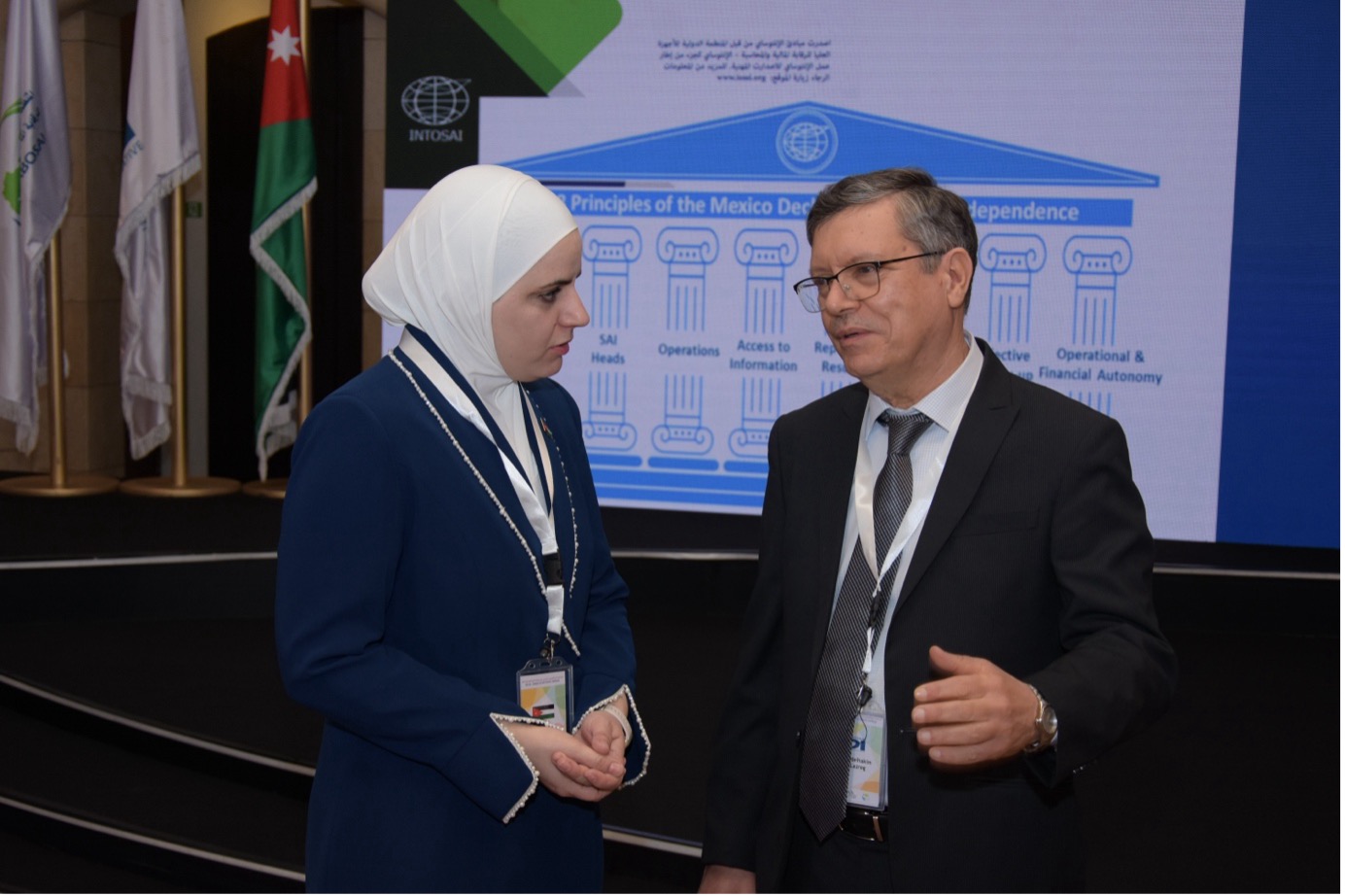
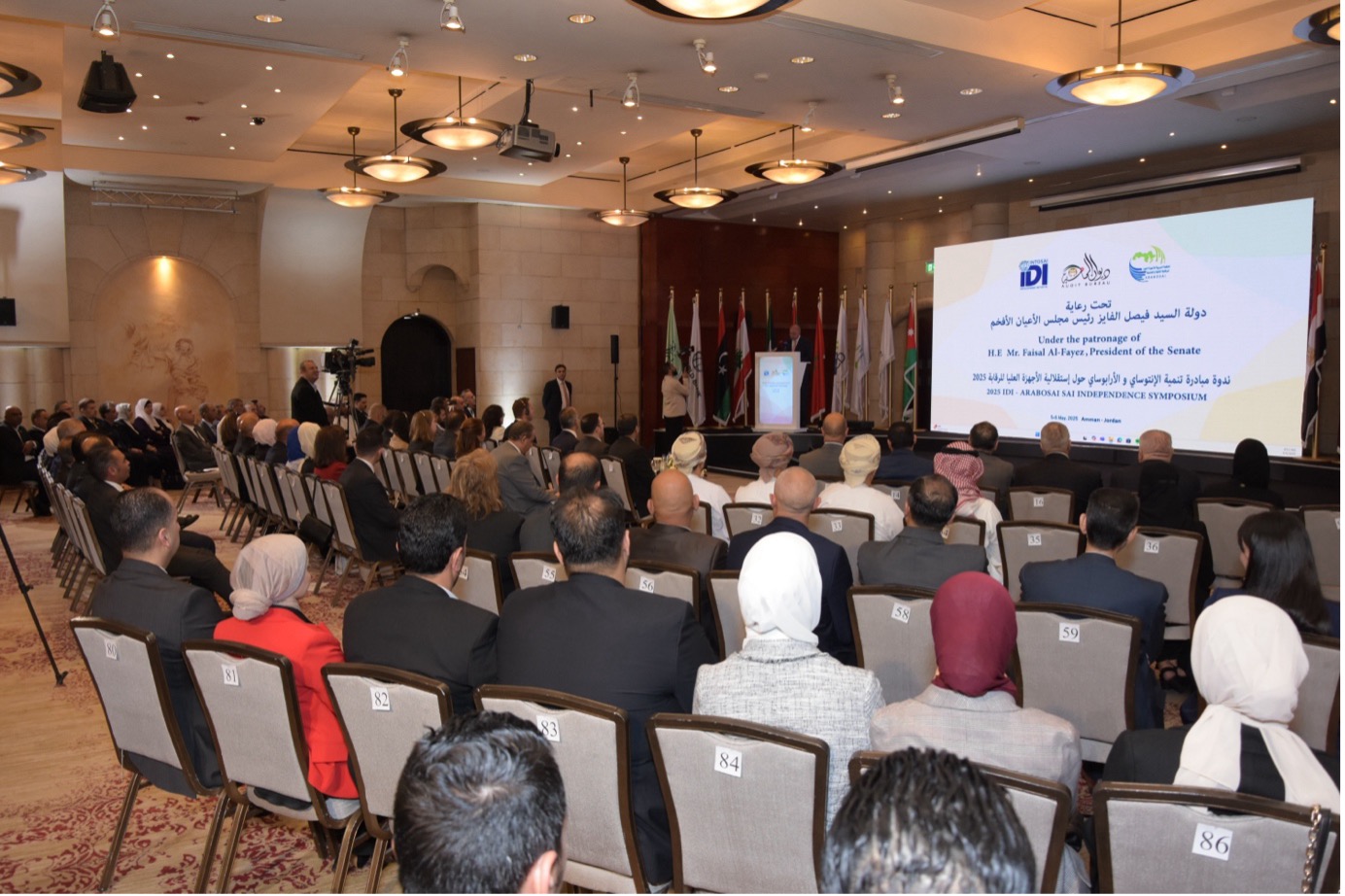
Hosted by the Audit Bureau of Jordan (SAI Jordan), the Arab Organisation for Supreme Audit Institutions (ARABOSAI), and the INTOSAI Development Initiative (IDI), this year’s event focused on an important but often overlooked piece of the independence puzzle: informal factors. Opened by the President of the Jordanian Senate, the symposium included high-level parliamentary representatives and highlighted growing momentum for deeper SAI–parliament engagement in the region.
Across the Arab region, the commitment to strengthening the independence of Supreme Audit Institutions is growing. SAIs are increasingly recognising that independence is not just about laws—it’s also about how institutions operate in practice.
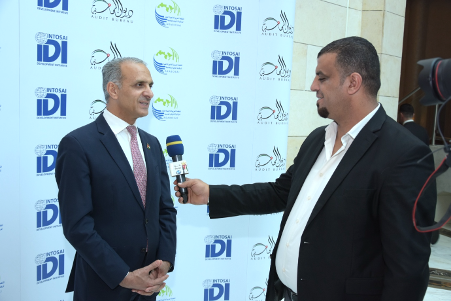
At the opening of the symposium, President of the Jordanian Audit Bureau, His Excellency Radhi Al-Hamadeen, pictured above, captured this well: “Formal laws matter, but informal safeguards such as public trust, media visibility, and political relationships also shape how we work.” Experts from the Organisation for Economic Cooperation and Development (OECD) and the World Bank echoed this, noting that regional gatherings like this one are key to sustainable change.
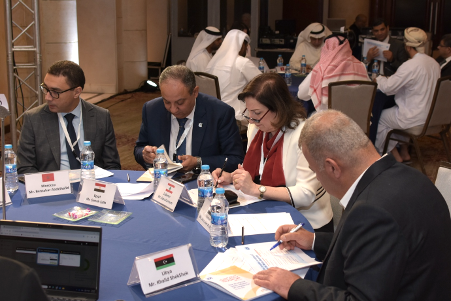
Representatives from 14 countries, including from Egypt, Iraq, Jordan, Kuwait, Lebanon, Mauritania, Morocco, Oman, Palestine, Qatar, Saudi Arabia, the United Arab Emirates, Tunisia, and Yemen, joined the two-day event to share experiences and explore solutions. Through peer learning and open dialogue, participants agreed: SAI independence is strengthened when institutions build trust, engage stakeholders, and collaborate across borders.
Another key takeaway: SAIs can’t advance independence alone. Parliaments, especially their oversight committees, play a critical role in ensuring SAIs are not just legally independent but also empowered to act.
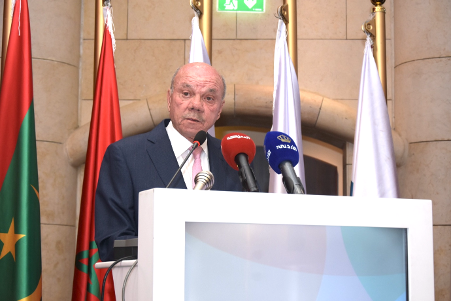
His Excellency Faisal Al-Fayez, President of the Jordanian Senate, called for stronger partnerships between SAIs and lawmakers. “Oversight is a shared responsibility,” he said. “SAIs are our strongest partners in protecting public funds and public trust.” He described SAIs as “a shield to protect citizens, a sword to combat corruption, and a bridge to achieve justice and development.”
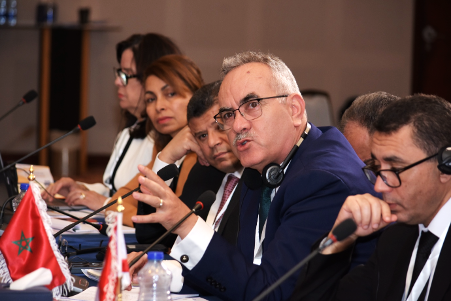
In one conversation, parliamentarians and SAI leaders discussed how mutual respect and information-sharing help create enabling environments. Pictured centre, Moroccan MP The Honourable Mohamed Hajira emphasised the importance of real-world exchanges: “When parliamentarians and oversight experts come together in spaces like this, we exchange practical experience that helps us strengthen what works and address what doesn’t.”
These unique and cross-cutting conversations are essential to building trust and protecting SAIs from informal pressures.
SAI Jordan used the symposium to highlight its leadership in promoting independence, including spotlighting its new and recently launched strategic plan focused on development and transparency.
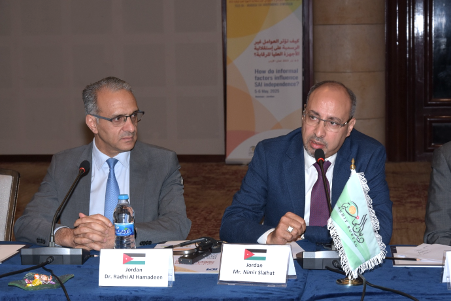
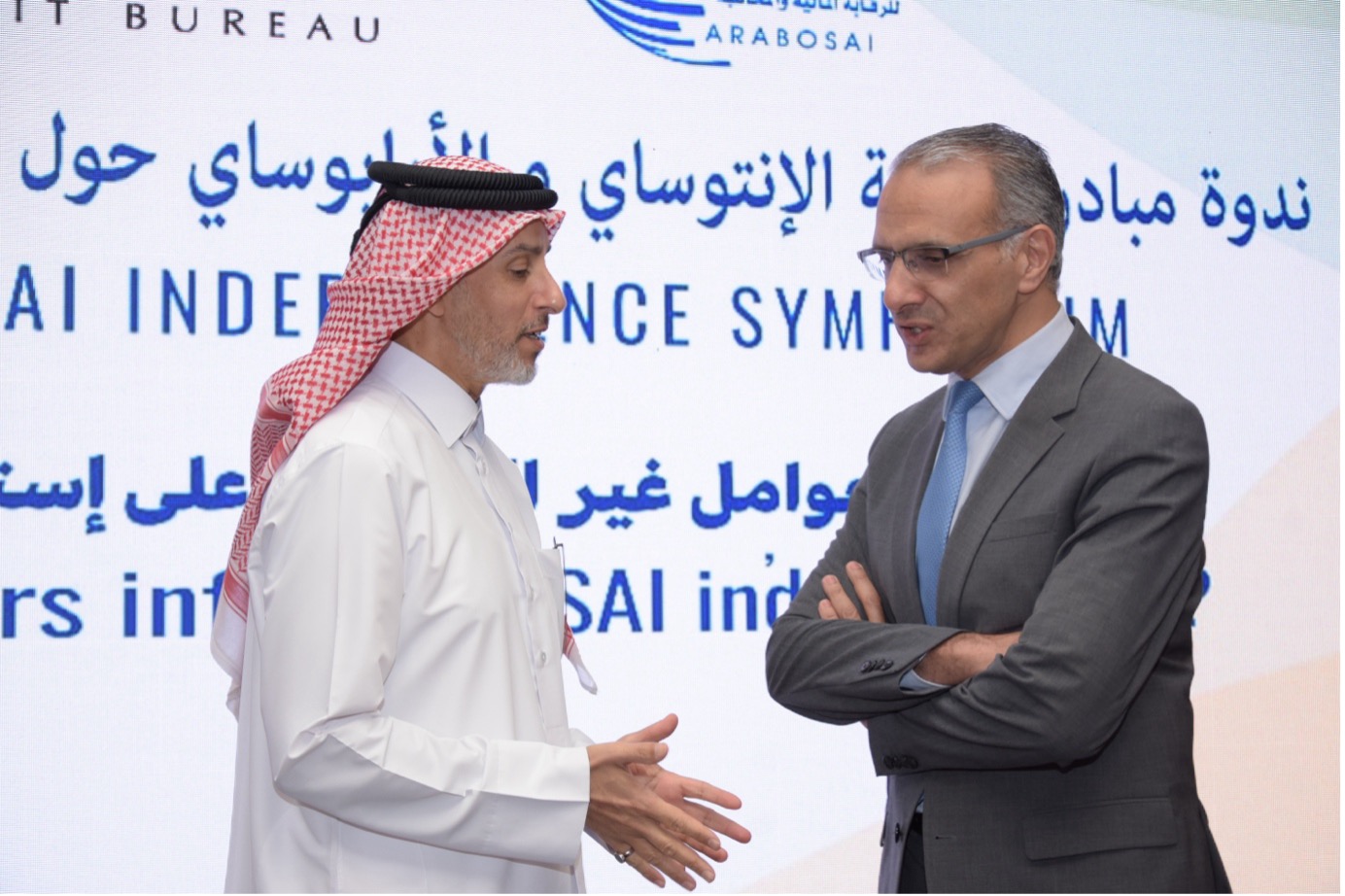
“Independence is vital for the Audit Bureau to carry out its role fully and without influence,” said President Al-Hamadeen, pictured above. “Just as important is how society perceives our value.” Indeed, public trust and relevance were recurring themes throughout the event’s session.
Hosting the symposium was part of Jordan’s effort to show how SAIs can gain strength by being visible, understood, and connected to the people they serve. “When our work reflects public interest, it becomes sustainable and impactful,” Al-Hamadeen added.
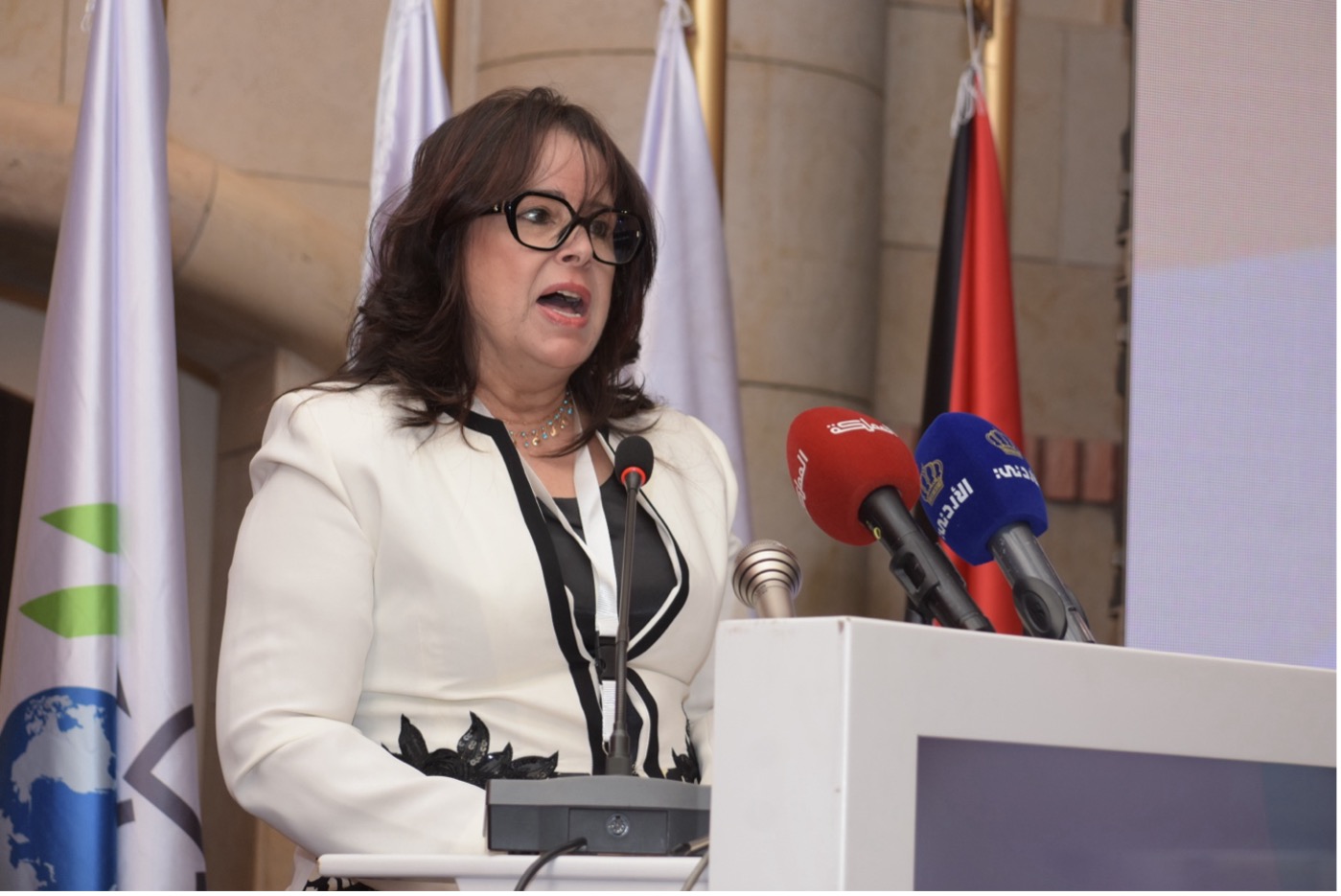
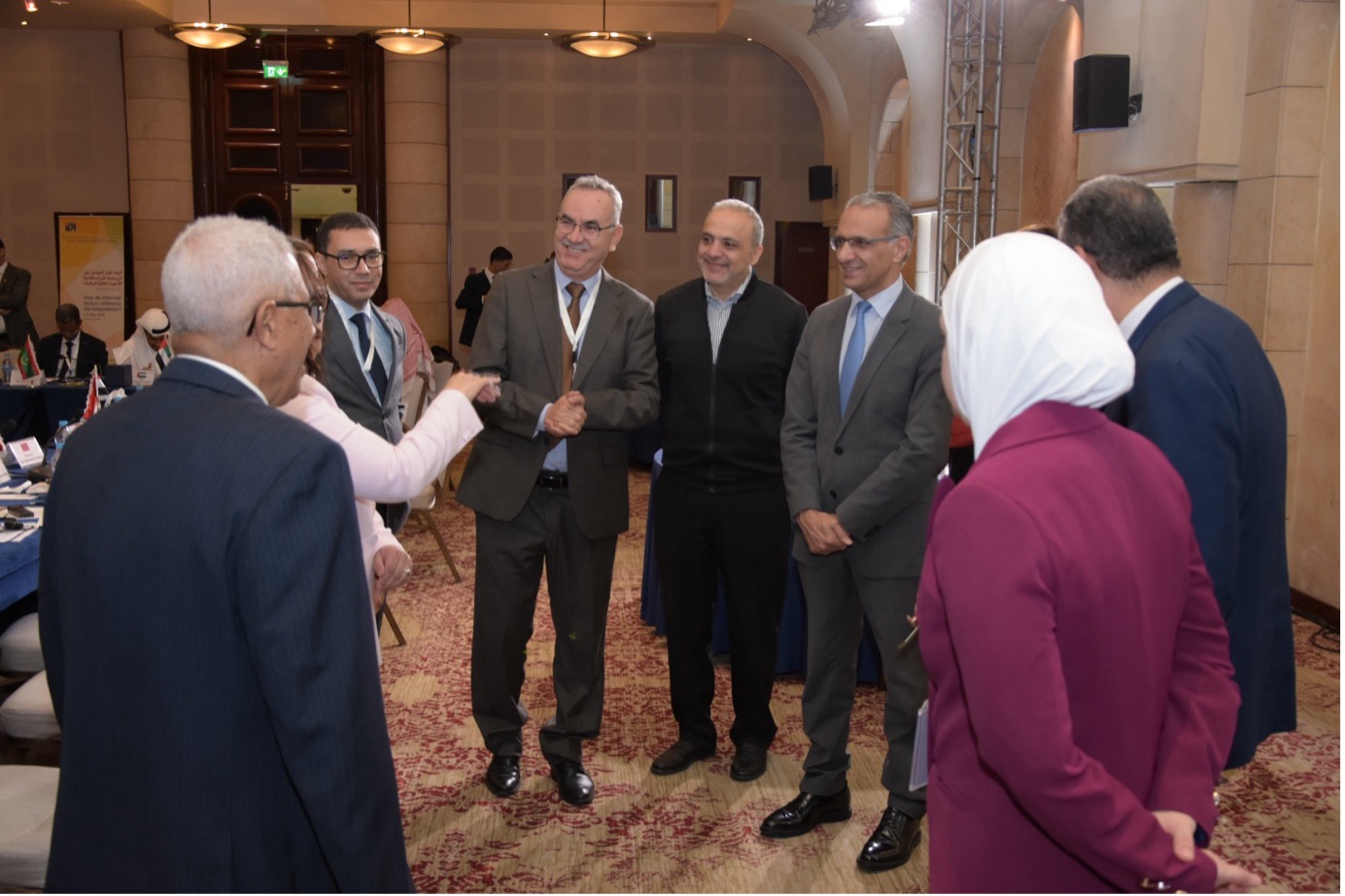
This message resonated with ARABOSAI, which continues to promote regional cooperation among its 22 member institutions. “We want our institutions to be strong, capable, and impactful,” said Her Excellency Fadhila Gharigouri, Acting Secretary General, ARABOSAI General Secretariat and representative of SAI Tunisia (pictured speaking above). “By sharing experiences and learning together, we build stronger institutions that deliver real value for citizens.”
For participants, it was clear: regional collaboration isn’t just helpful—it’s essential.
Not just a one-time forum for reflection, the IDI-ARABOSAI Symposium on SAI Independence will continue to serve as a catalyst for future action. Meeting yearly, this convening enables dialogue on a key topic for the region. As IDI Deputy Director General Ola Hoem observed, “Independence is not a checkbox. It’s a continuous negotiation between what’s written, what’s possible, and what’s practised. Here in this space, we welcome that conversation.”
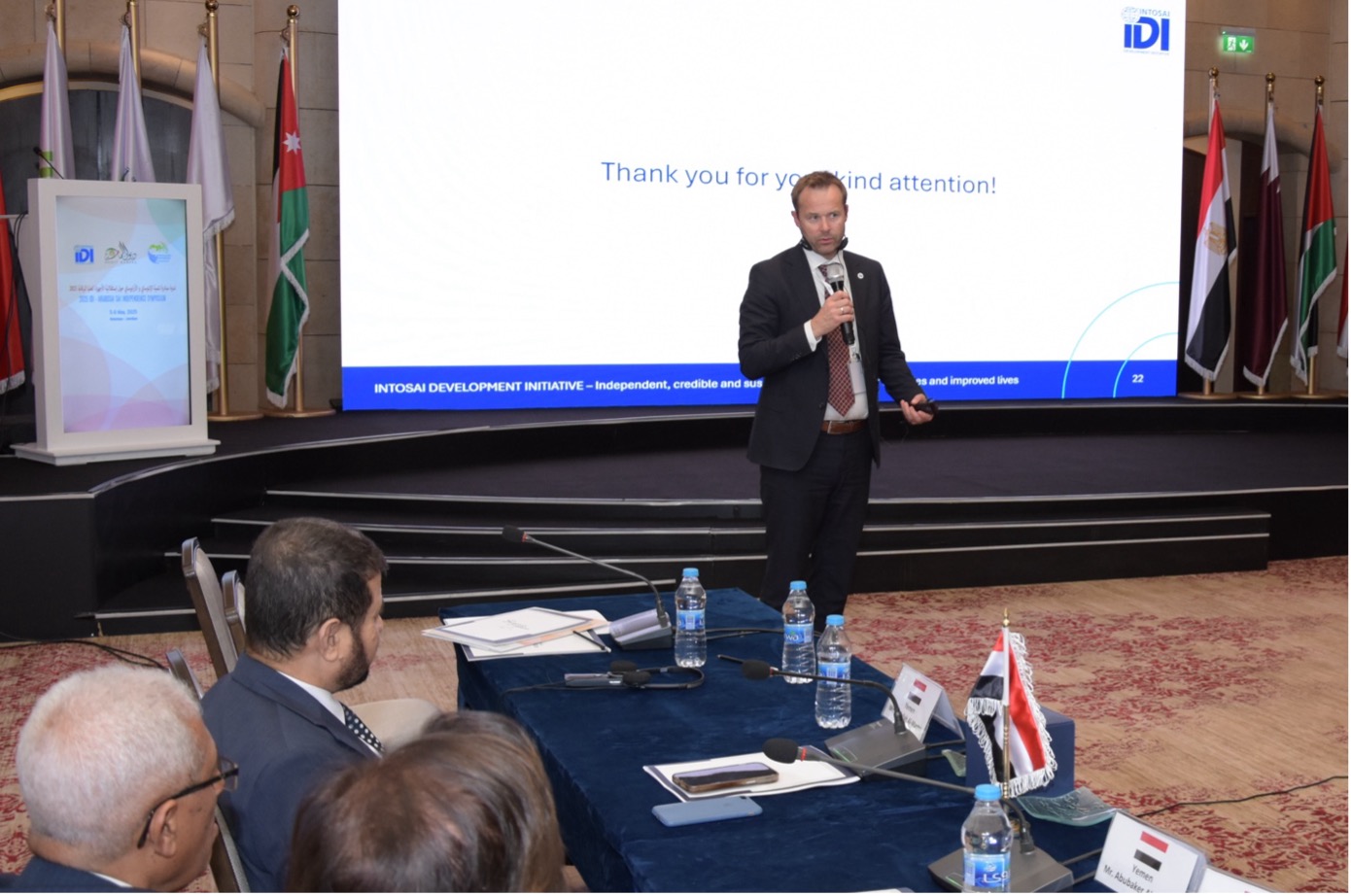
Additionally, these discussions are laying important groundwork for one of IDI’s other initiatives—the Global Project on SAI Independence. The multi-year partnership, co-led with OECD, aims to revolutionise the way we advocate for the independence of SAIs by collecting data on the informal factors that shape their operations and effectiveness. Part of regional data collection efforts, the symposium’s growing momentum is a powerful example of how global principles take shape in local contexts.

Throughout 2025, the Global Project will continue to build on this progress, through country visits, surveys and other regional events— connecting lessons gained with other quantitative data and global advocacy efforts. Working with OECD, pictured above, the INTOSAI General Secretariat and other leading accountability partners, IDI will publish its final report on the impact of informal factors on governance in 2026.
Closing the symposium, participants left with a shared recognition that independence is built on resilience, trust, and the ability to provide effective oversight. The path forward may pose challenges, but Arab SAIs show commitment to a clear message: pursuing change, one relationship, one reform, and one conversation at a time, is worth it for lasting impact.
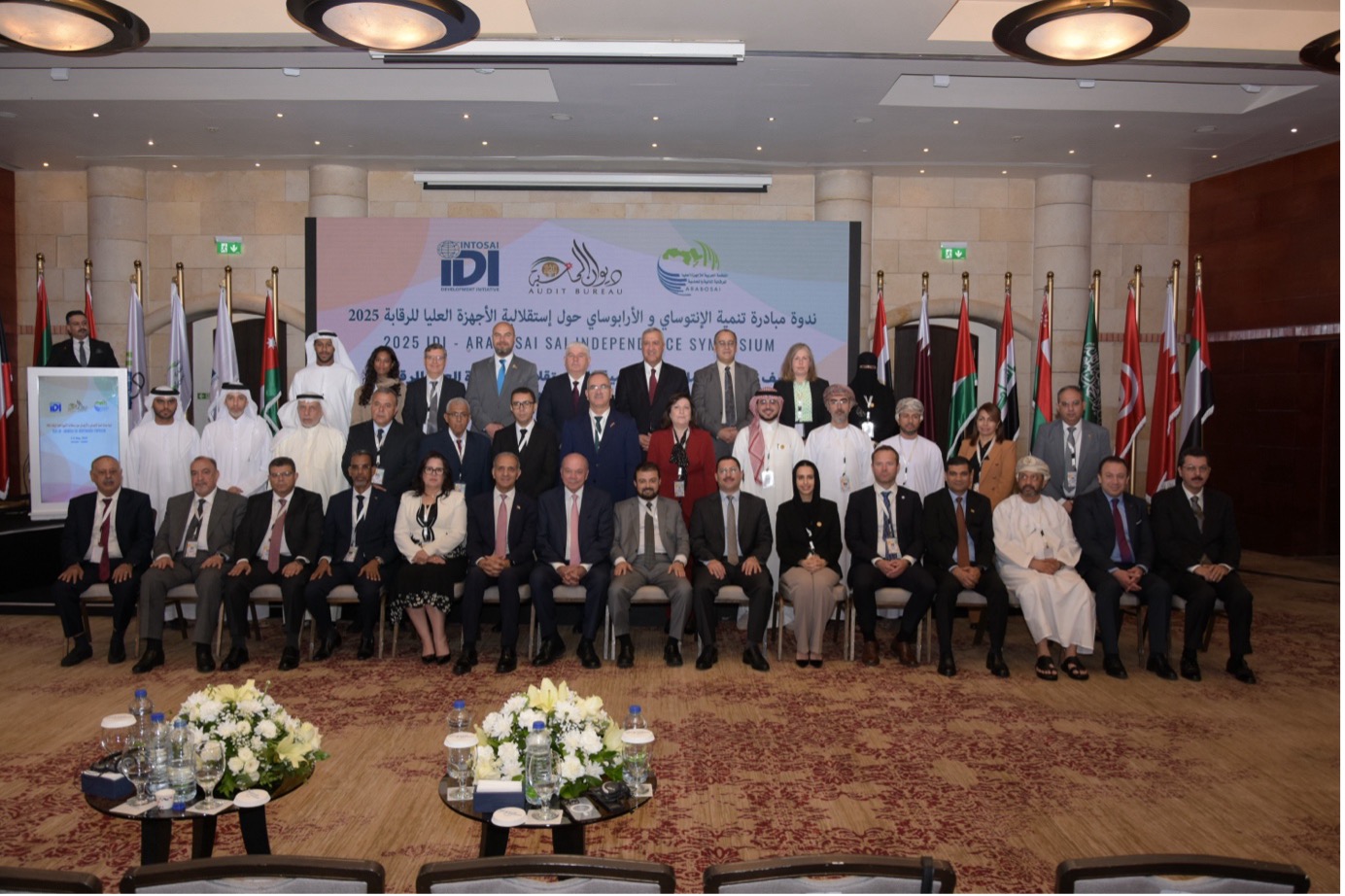
From 2 to 6 June 2025, staff from Supreme Audit Institutions (SAIs) across 14 countries in the European Organisation of Supreme Audit Institutions (EUROSAI), along with two participants from the African Organisation of English-Speaking Supreme Audit Institutions (AFROSAI-E), came together to strengthen their knowledge and skills in applying the SAI Performance Measurement Framework (SAI PMF). The occasion was an advanced SAI PMF training workshop hosted by the INTOSAI Development Initiative (IDI)— the third of its kind globally, following successful sessions in the ARABOSAI and ASOSAI regions.
At its core, the SAI PMF is a powerful tool. It enables SAIs to assess their strengths and weaknesses in a structured, evidence-based manner. By identifying areas of excellence and those in need of improvement, the framework offers a roadmap for meaningful institutional reform. But its impact extends beyond the walls of audit offices to support a more transparent use of public resources and ensure alignment with national priorities.
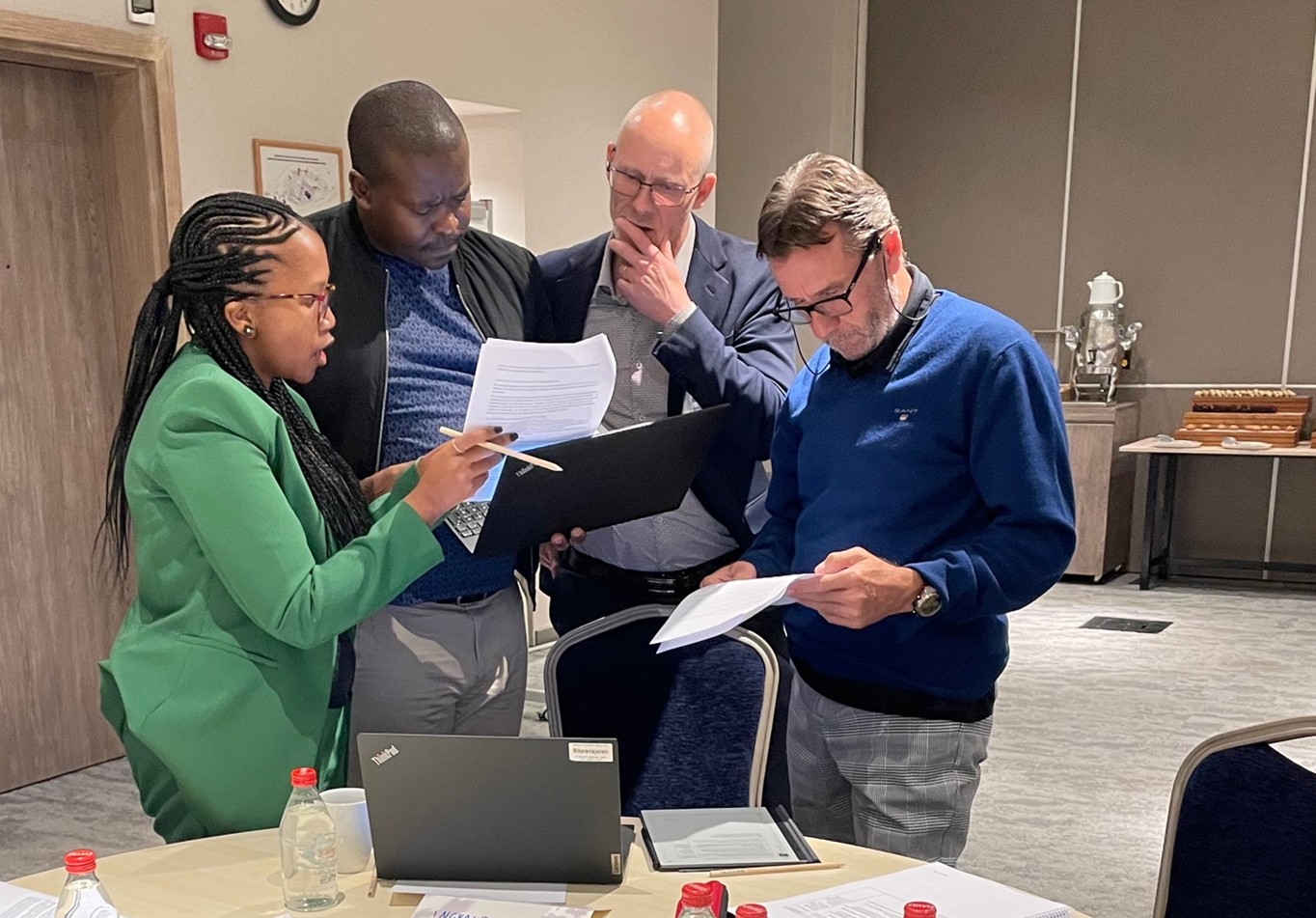
The Istanbul workshop was designed to create a ripple effect. As more SAI staff develop expertise in using the framework, they become local champions who can guide their institutions and peers towards positive change. They also contribute to a growing global network of independent reviewers, professionals who can provide impartial quality assurance when SAIs conduct self-assessments using the SAI PMF.
Throughout the week, participants shared experiences from their home countries, offering real-world context and inspiration. Some had recently completed SAI PMF assessments, while others were gearing up to start. This mix of experience levels added depth to the discussions and fostered mutual learning.
Over the five-day workshop, IDI’s manager and SAI PMF specialist Brighton Nyanga led participants through the full life cycle of a SAI PMF assessment—from planning and scoring to analysis, reporting, and publishing or sharing results. The training balanced theory with hands-on exercises and included sessions on newer developments such as repeat assessments, quality management, and how SAIs can use the framework for performance monitoring.
The discussion also spotlighted the ongoing revision of the SAI PMF itself, due to be adopted at the next INTOSAI Congress in September 2025. For many SAIs, these changes will make the framework even more relevant to the current governance challenges and reflect lessons learnt since its launch in December 2016.
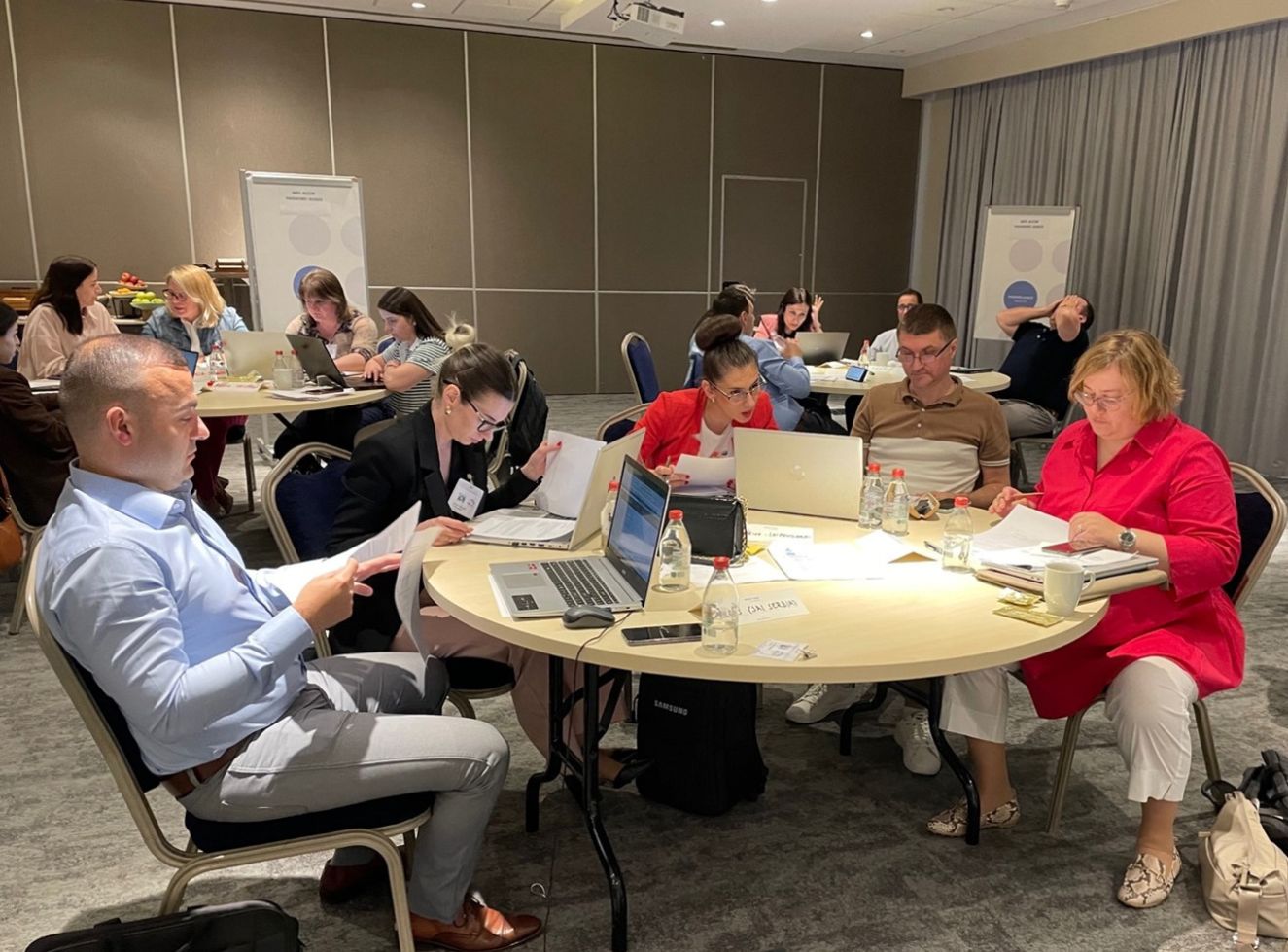 |
 |
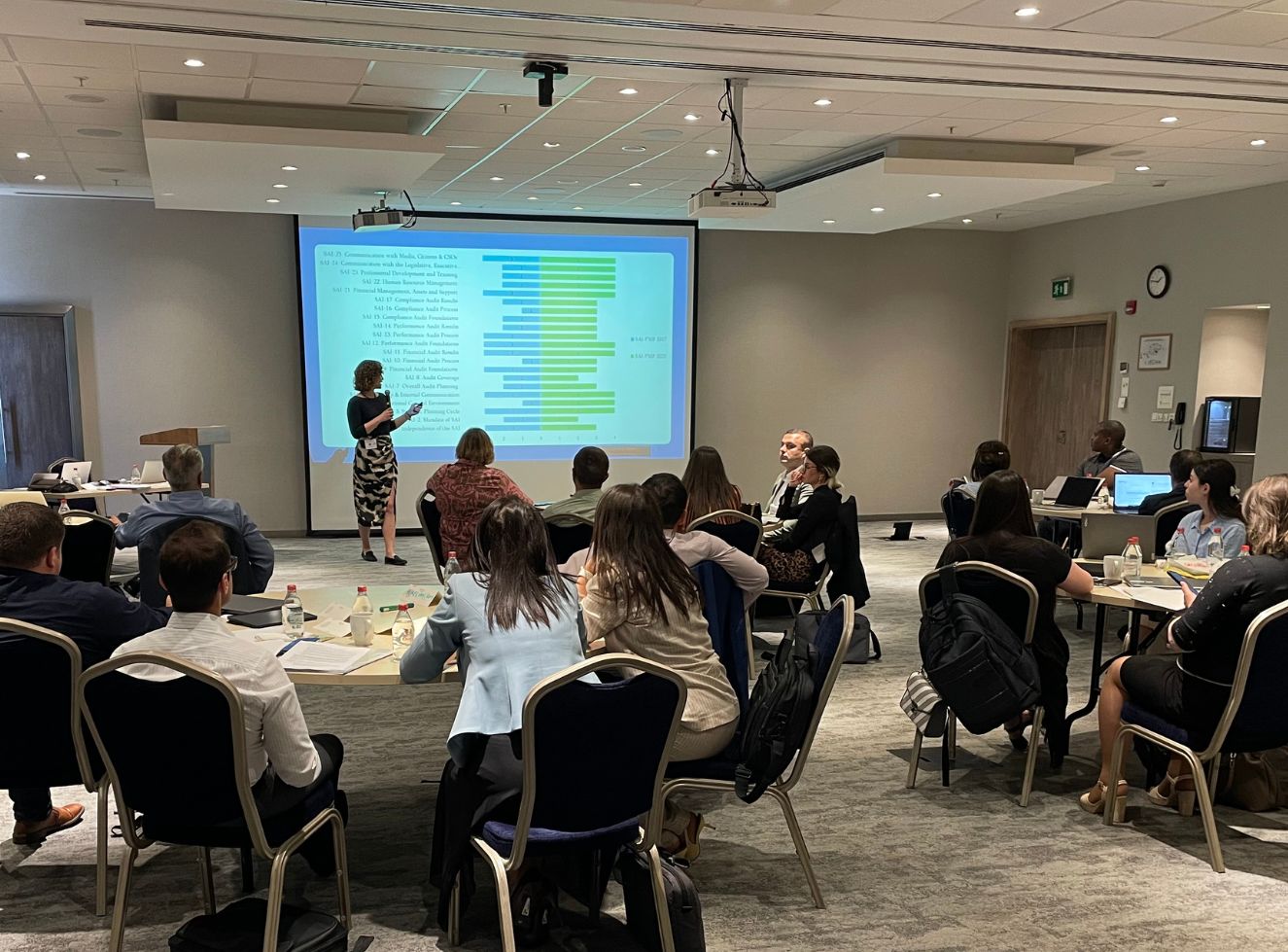 |
The Istanbul training formed part of IDI’s wider efforts to promote more consistent and effective uptake of the SAI PMF at the regional level. This initiative is central to IDI’s global implementation strategy for 2023–2028, which emphasises sustainable, long-term use of the framework across all INTOSAI regions. By building the technical capacity of SAI staff through targeted training, IDI aims to foster a deeper understanding of the framework and enable SAIs to lead their own assessments with confidence.
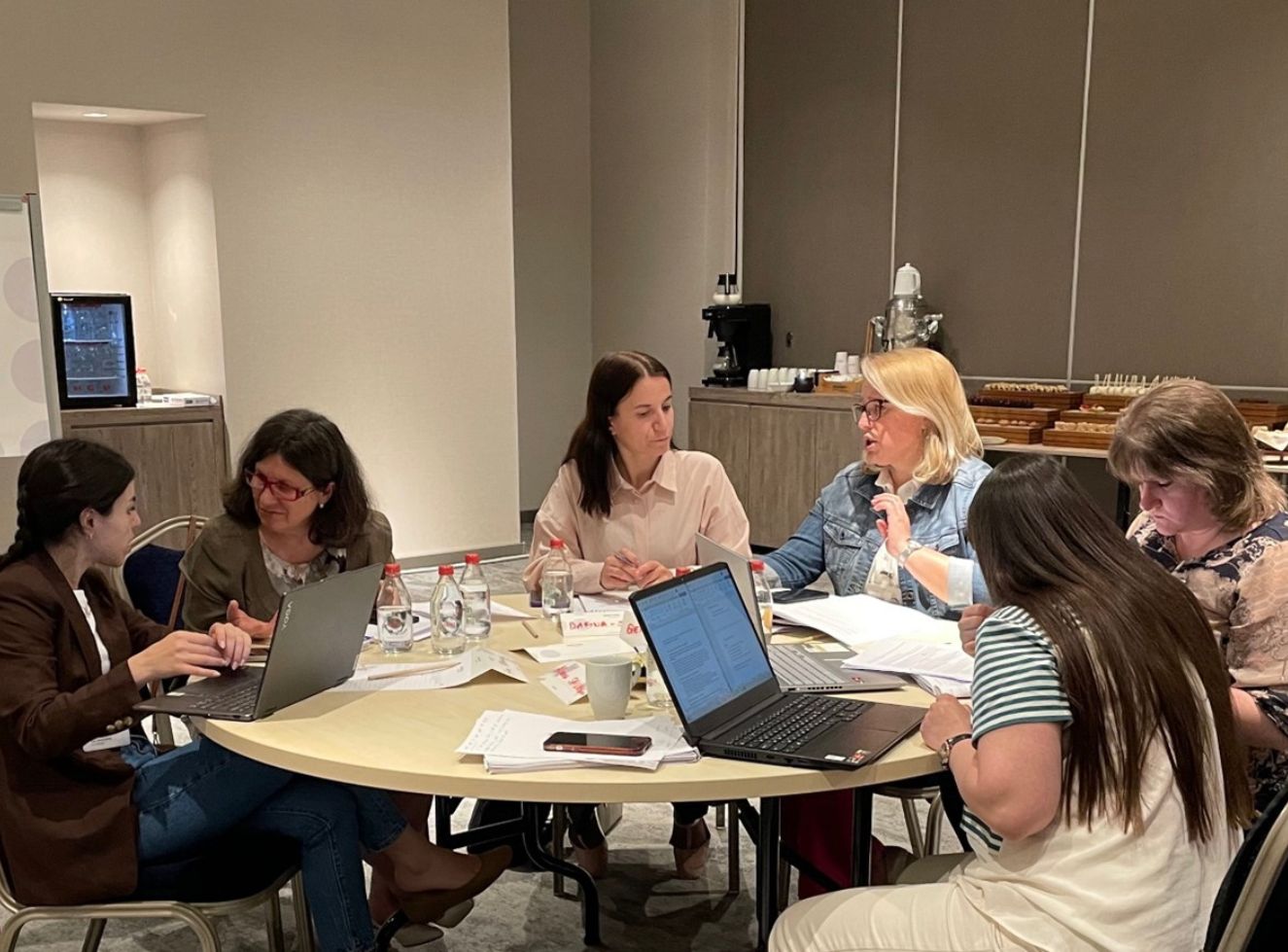 |
 |
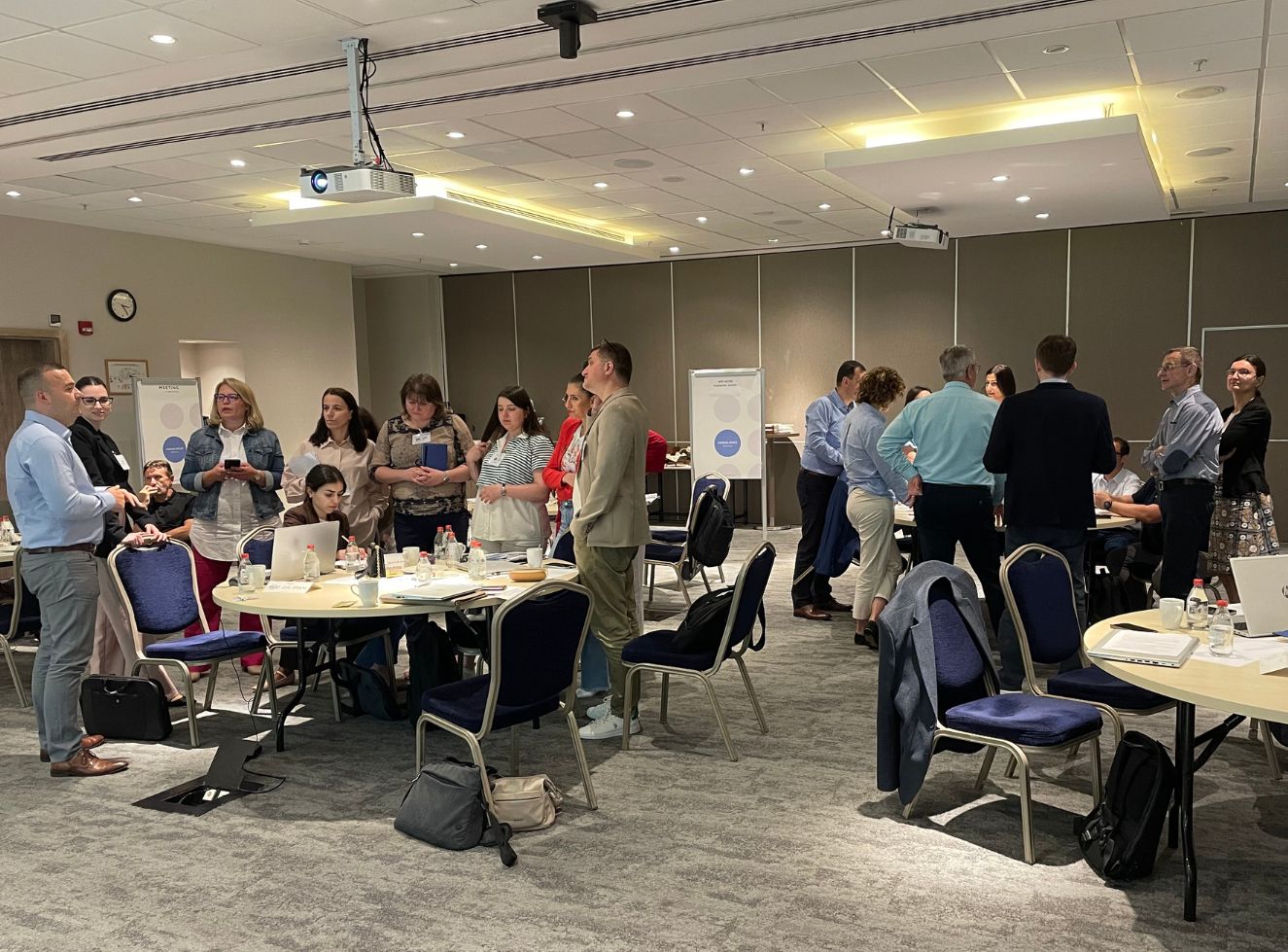 |
This regionally driven approach helps strengthen peer-to-peer support networks, where experienced practitioners can guide and mentor others in applying the framework. Such collaboration not only reinforces learning but also contributes to a growing community of practice around SAI PMF implementation.
Looking ahead, IDI intends to roll out similar workshops in the remaining INTOSAI regions, ensuring that no region is left behind in the global effort to develop stronger, more independent, credible, and sustainable Supreme Audit Institutions.
When SAIs are equipped to assess their performance with confidence and credibility, they are better positioned to audit public funds, identify inefficiencies, and recommend meaningful improvements. This, in turn, enhances the transparency and accountability of public institutions and helps ensure that resources are used in ways that serve citizens and uphold national priorities.
By empowering SAIs to better understand and improve themselves, the SAI PMF contributes to broader transformation across the public sector. The Istanbul workshop marked an important milestone in that ongoing journey; one that has the potential to form stronger audit practices, more impactful oversight, and ultimately, more accountable governance.
As the latest training in a global series led by IDI, the workshop not only deepened technical knowledge but also helped build a network of committed professionals in EUROSAI ready to support peer learning and institutional reform.
To learn more about this initiative, check out our SAI PMF page.
Touching down in Tashkent this March, the IDI team was warmly welcomed to the offices of SAI Uzbekistan—a young and ambitious Supreme Audit Institution (SAI) at a turning point in its development.
What began as a relationship-building visit quickly grew into something more meaningful: the beginning of Uzbekistan’s inclusion in the Global SAI Accountability Initiative (GSAI). This flagship programme, led by IDI and the INTOSAI Donor Cooperation (IDC) and funded by the European Union, provides deep, tailored support to SAIs operating in some of the world’s most challenging contexts.
For SAI Uzbekistan, this moment marks a key milestone. For IDI, it signals a broader shift as we expand our engagement in Central Asia, a region showing increasing openness to reform, stronger public institutions, and deeper international cooperation.
The seeds of this collaboration were planted when colleagues from SAI Uzbekistan took part in a high-level delegation visit to the Norwegian National Audit Office and Parliament, known as Stortinget, and to IDI’s headquarters in Oslo, co-hosted by the World Bank.
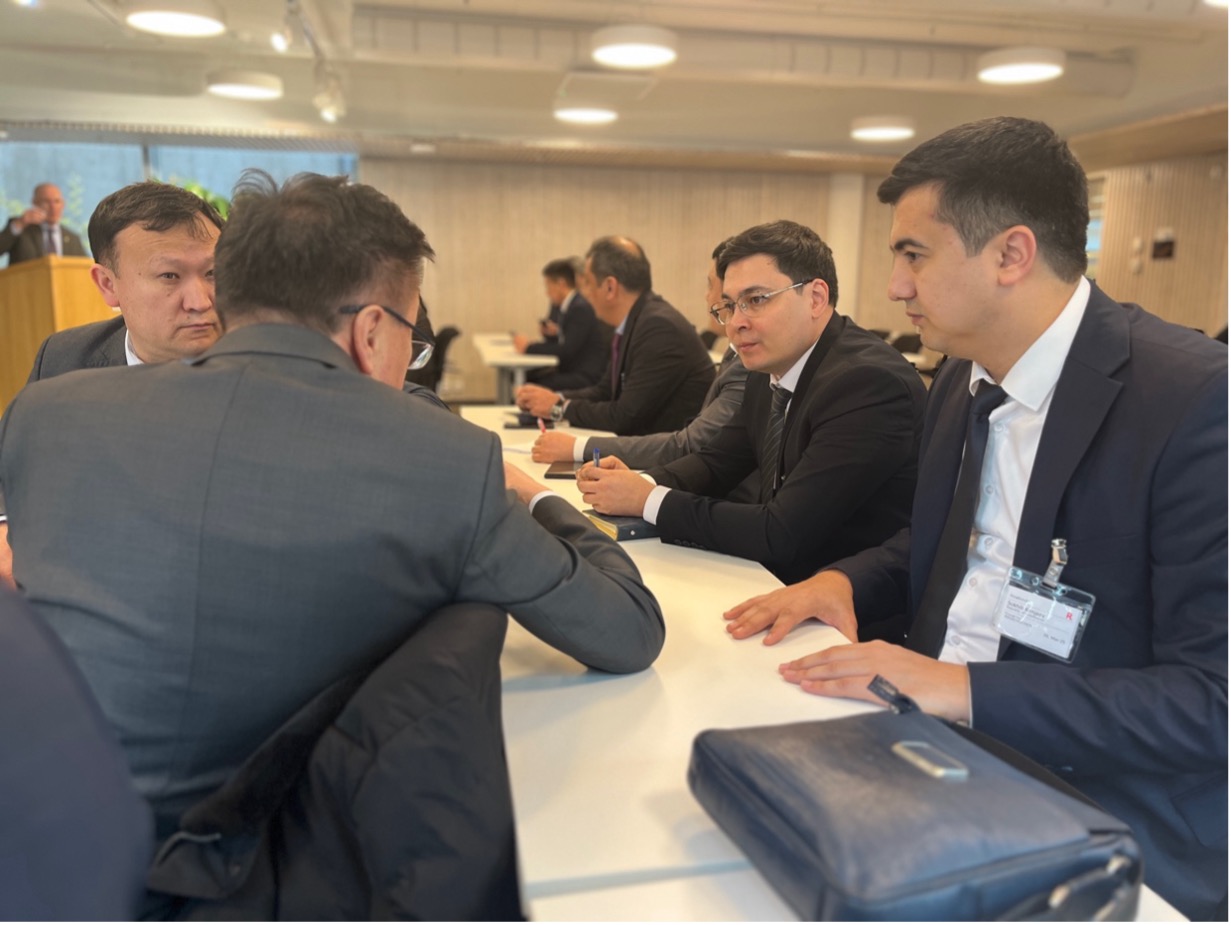
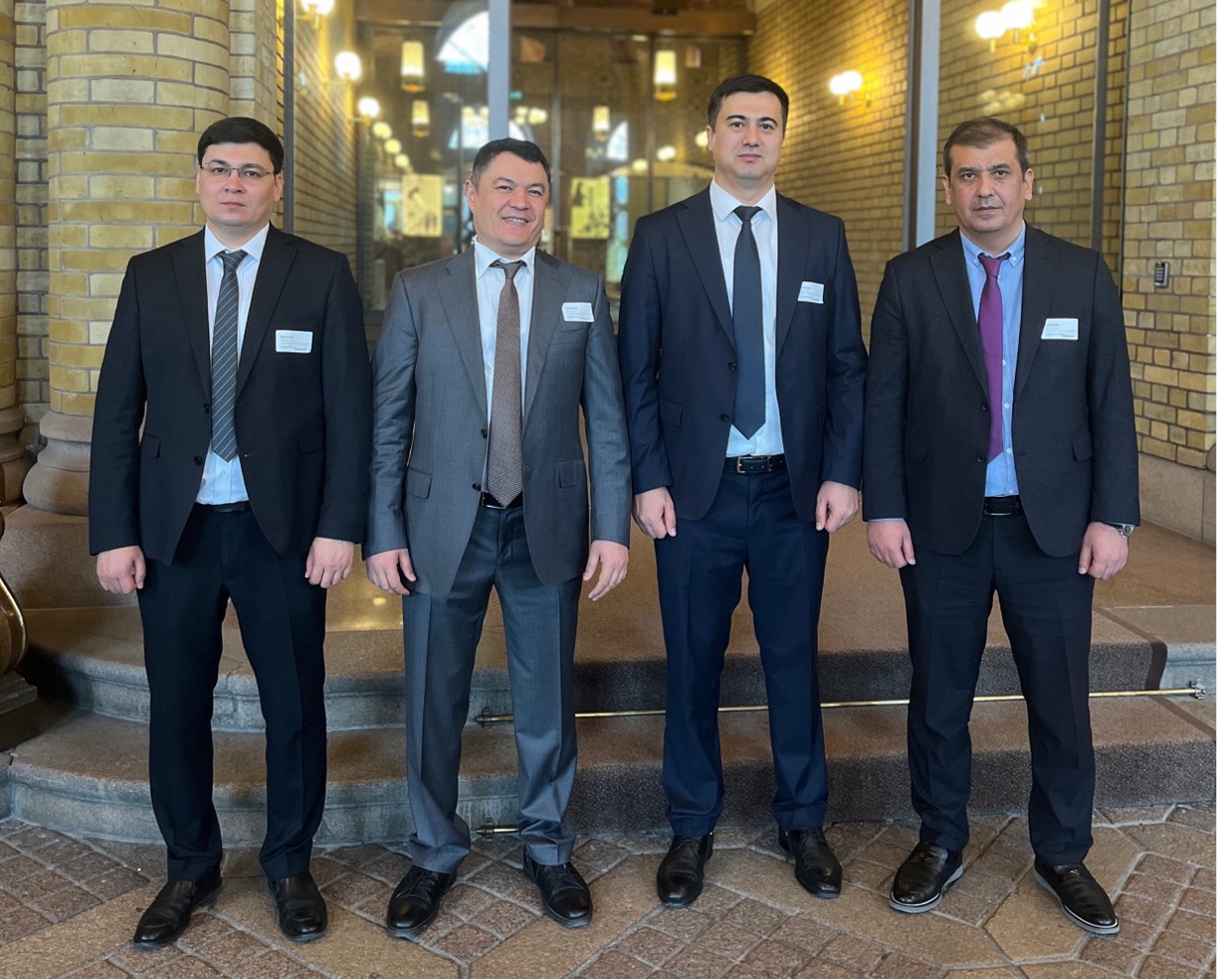
The visit, taking place in early March, gave SAI Uzbekistan valuable insight into new oversight practices and sparked greater interest in IDI’s initiatives, including GSAI. Kudrat Erimmetov, Chief Inspector at SAI Uzbekistan, (pictured right) noted, “Being in the room with other SAIs showed us what’s possible and motivated us to think beyond daily tasks, toward long-term development. Our team is young, open to change, and eager to learn.”
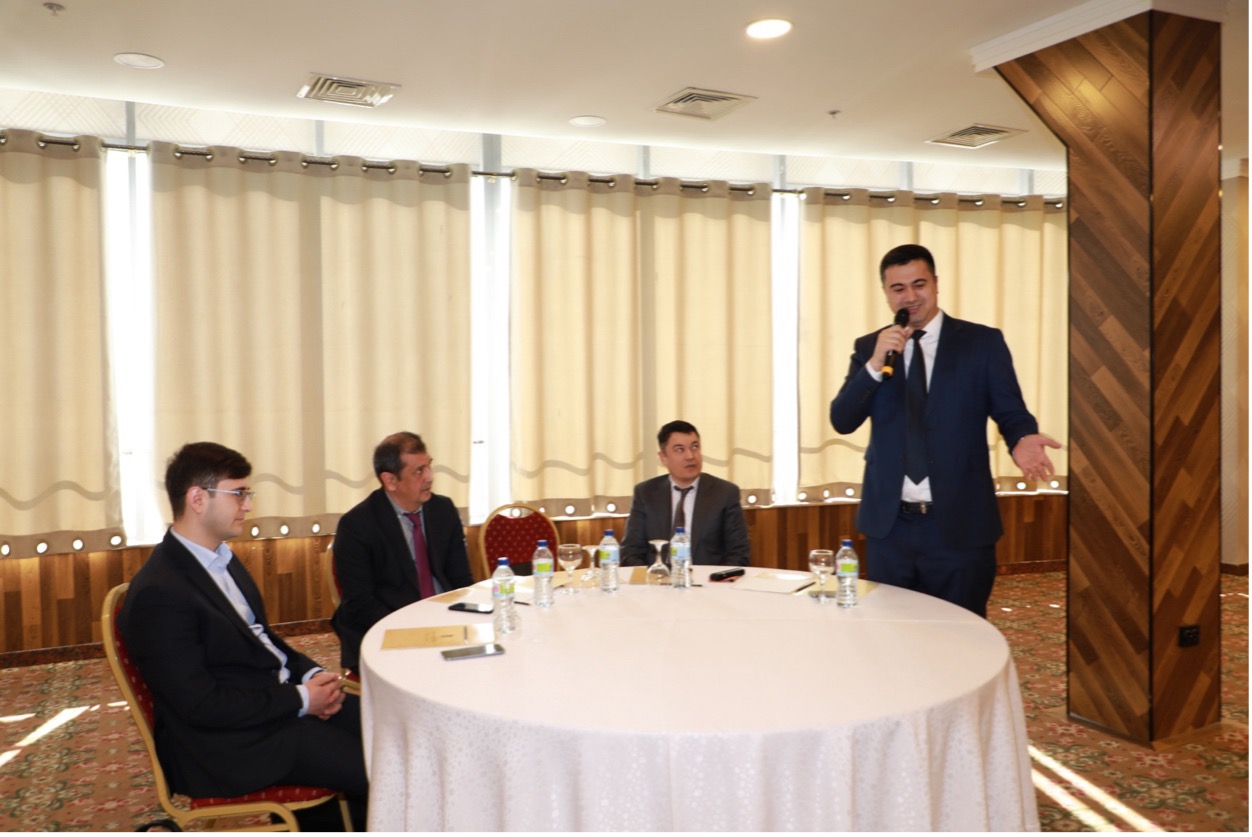
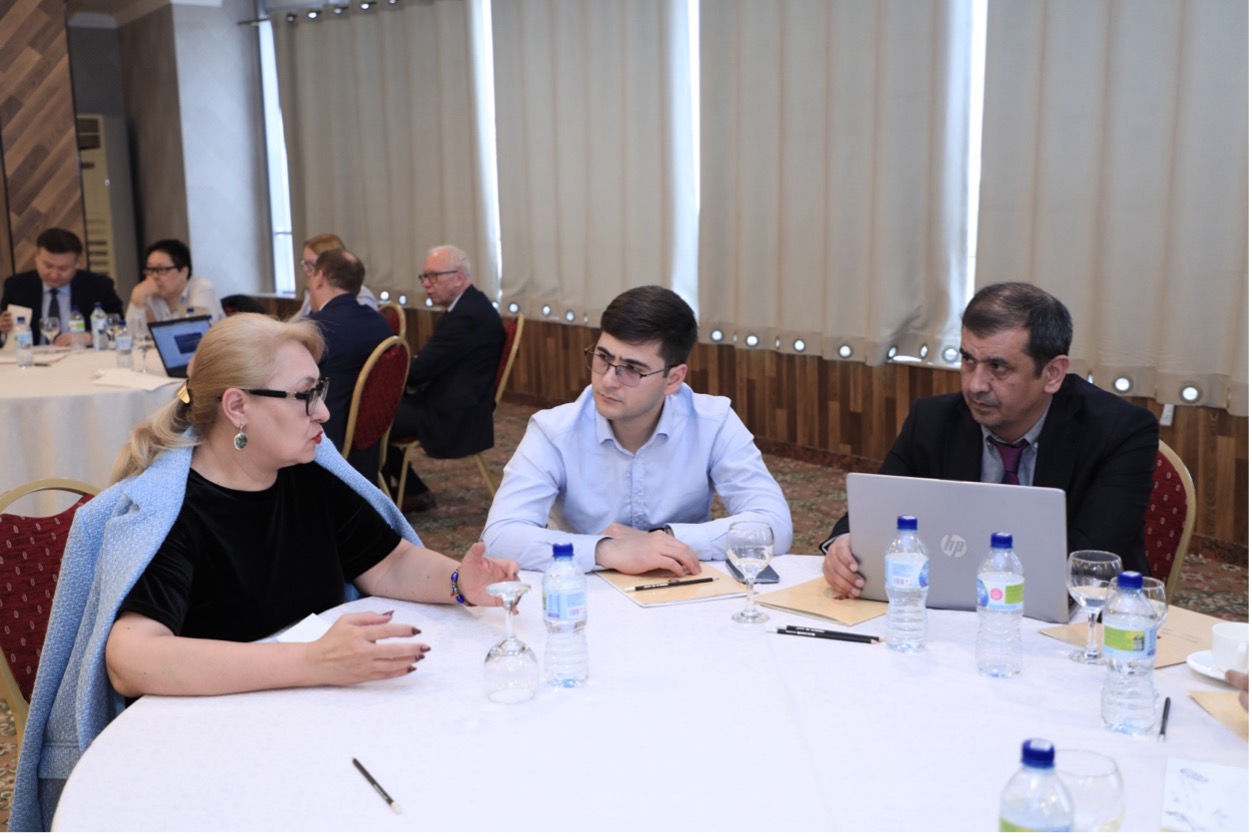
Shortly after the successful conclusion of the Oslo visit, SAI Uzbekistan joined the GSAI Phase 2 Workshop held in Tashkent as an observer and as the host SAI. Being part of that space, surrounded by experienced GSAI peers like other Central Asian SAIs and peer mentor SAI Poland, gave them the opportunity to connect directly with those driving the initiative. It also helped everyone gain a clearer understanding of the strengths and specific support needs of this evolving SAI.
And in a real sense, that’s where their onboarding to the GSAI journey began.
Formed only a few years ago, SAI Uzbekistan has a vision to build its audit capacities and to strengthen institutional oversight. While the staff is still laying foundational elements, like a long-term strategic plan, they’ve already made bold strides in some areas—particularly in digitalisation.
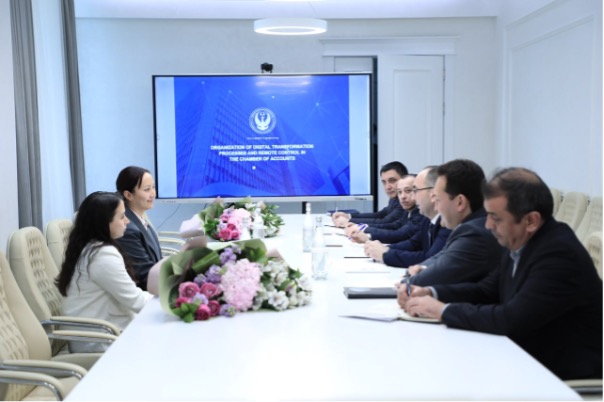
During IDI’s visit, SAI Uzbekistan showcased their integrated digital platform, a cutting-edge system that connects the SAI to the wider public financial management ecosystem. The platform, which enables real-time audits and remote oversight, stands out as a potential best practice in the region.
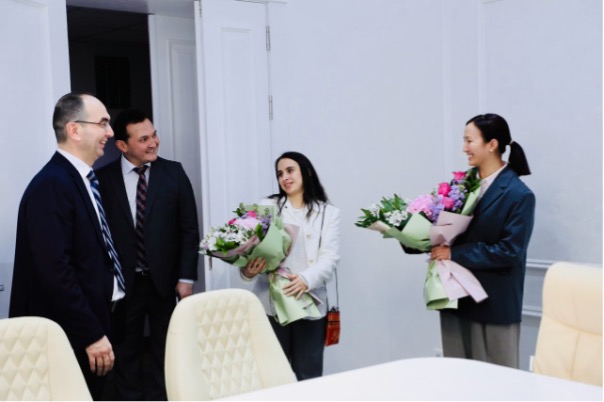
“SAI Uzbekistan has shown impressive results in the digitalisation of the audit process and expanding access to public financial data and analysis. Their strength lies in these areas,” said Nazgul Albanova (pictured right), Manager at IDI and Head of the GSAI. “However, having only been established as an SAI in 2021, they need support in strengthening capacities in audit quality, strategic management and stakeholder engagement as well.”
That’s where the initiative’s unique approach comes in: we build on what’s working and bring in peer support to address what’s not yet in place.
We are pleased to announce that SAI Uzbekistan is now part of GSAI’s support portfolio and will work with INTOSAI’s network of peer SAIs to focus on enhancing the institution’s strategic management practices.
This includes conducting a SAI PMF (Performance Measurement Framework) assessment and supporting the development of the SAI’s strategic plan—an essential step in building institutional resilience and credibility. The SAI will also be joining the upcoming round of IDI’s Strategy, Performance Measurement, and Reporting (SPMR) Initiative, supported by the Swiss Secretariat for Economic Affairs (SECO), which will address its performance assessments, strategic and operational planning, monitoring and reporting efforts.
With experts now on board, the next step is to provide direct mentorship and support to SAI Uzbekistan through the help of peers. This growing cooperation is also strongly supported at the national level, including backing from Uzbekistan’s Ministry of Finance, a clear signal that institutional strengthening is a national priority.
“We are proud to join the GSAI programme. It’s a strategic opportunity to strengthen our institutional capacity with support from experienced peers,” said Erimmetov (pictured above).
At IDI, we know that trust in public institutions doesn’t come easily. It must be earned and built over time.
That’s what the Global SAI Accountability Initiative is all about: working shoulder-to-shoulder with SAIs in some of the world’s most complex governance environments, and helping them build the foundations of credibility, relevance, and independence.
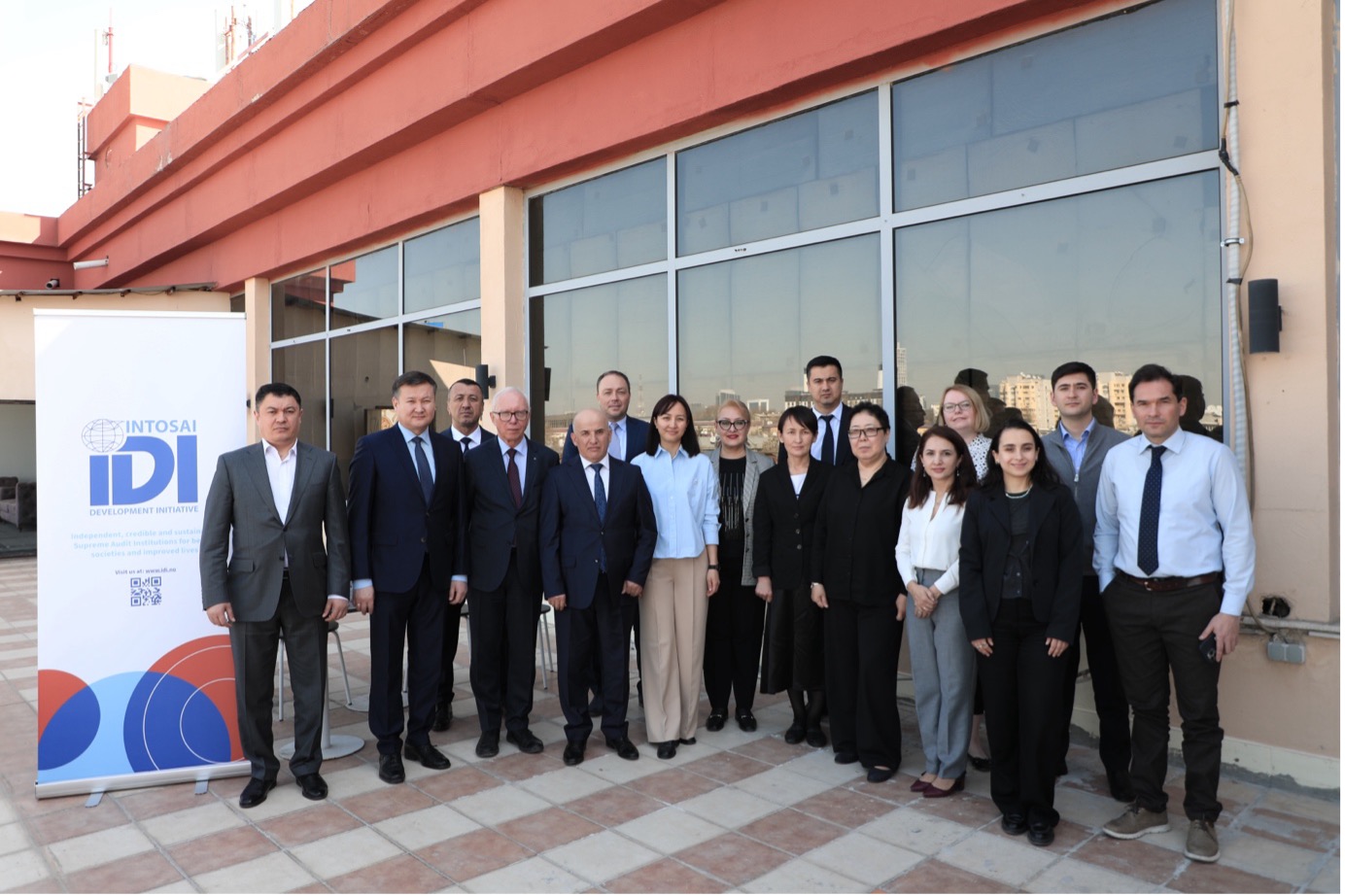
Having met SAI Uzbekistan’s representatives at the Tashkent workshop (pictured with participants above), SECO’s Mavzuna Shozodaeva, shared, “SAIs are playing a vital role in ensuring strong public financial oversight. This benefits the whole macroeconomic system and public financial management of the country. These efforts will further enhance financial accountability, promote transparency, and support good governance in the region.”
GSAI isn’t about quick fixes—it’s about building a strong foundation. With SAI Uzbekistan now joining this dynamic peer support network, we’re not just expanding the GSAI portfolio. We’re strengthening the future of accountability in Central Asia, one partnership at a time.
📽️ Stay tuned for more:
We will be sharing insights from our partners across the GSAI network over the coming weeks. Until then, keep an eye on our social media as we welcome SAI Uzbekistan into the fold and if you’d like to know more about Global SAI Accountability Initiative, check out our page.
How do public institutions rebuild trust in a region where oversight is often overlooked, and audit reports gather dust, unseen by the very people they are meant to serve?
This question was at the heart of a recent three-day planning workshop in Belize City, Belize where IDI brought together beneficiary and peer partner Supreme Audit Institutions (SAIs) to co-design the next phase of the Global SAI Accountability Initiative (GSAI), funded by the European Union.
In Dominica and Belize, countries where the respective SAIs and their audit reports historically have had low public visibility, this event marked more than a planning meeting. It was a signal that their institutions matter, that reform is possible, and that they're not alone on the journey.
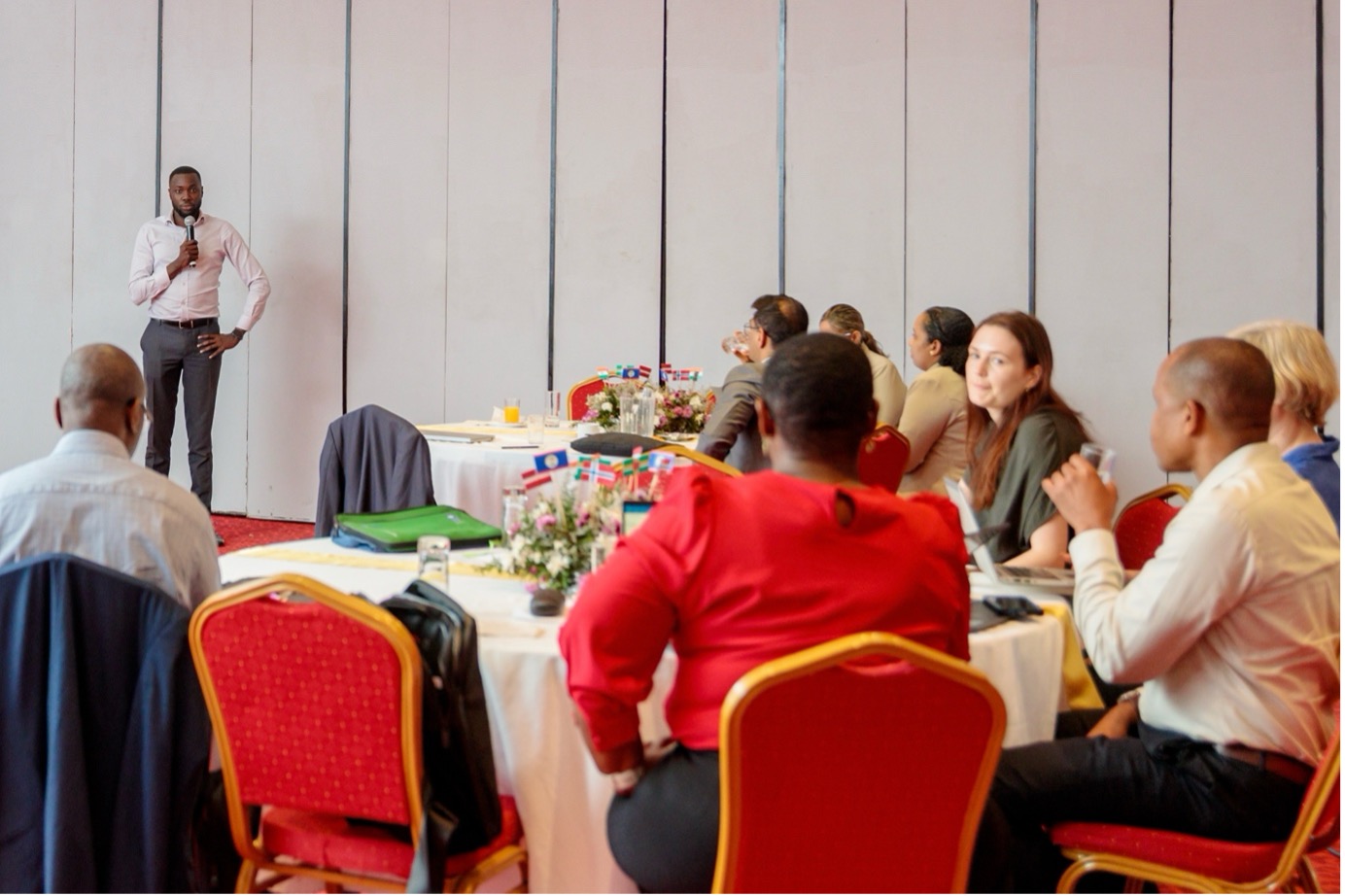
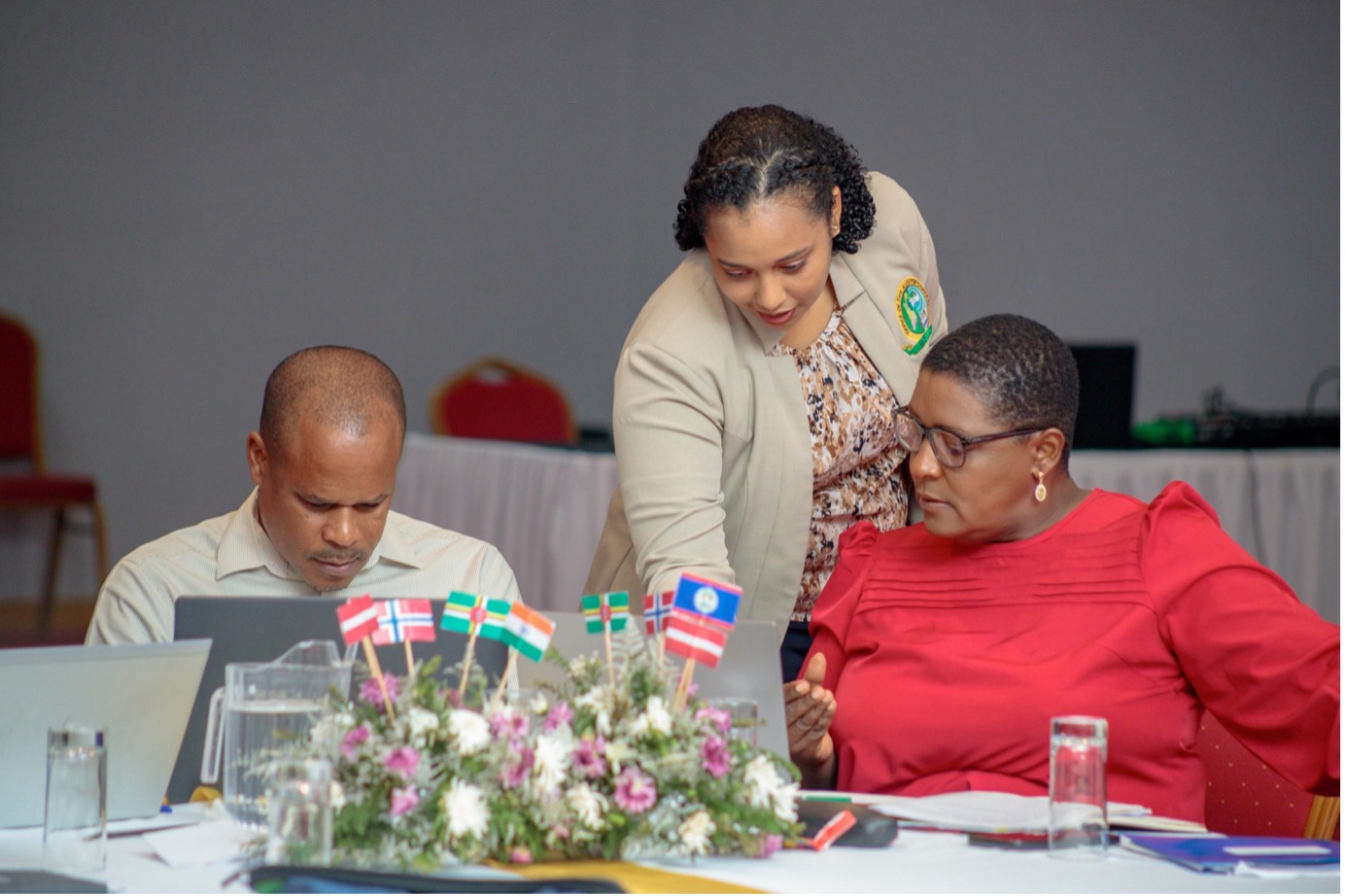
Hosted from 13–15 May 2025, the GSAI Phase 2 workshop welcomed participants from SAI Dominica, SAI Belize, peer partners from SAI Latvia and SAI India, and key donor representatives from the US Embassy and the World Bank. The energy in the room was clear: this wasn’t a typical meeting, but a collaborative planning space anchored in peer-to-peer exchange and trust.
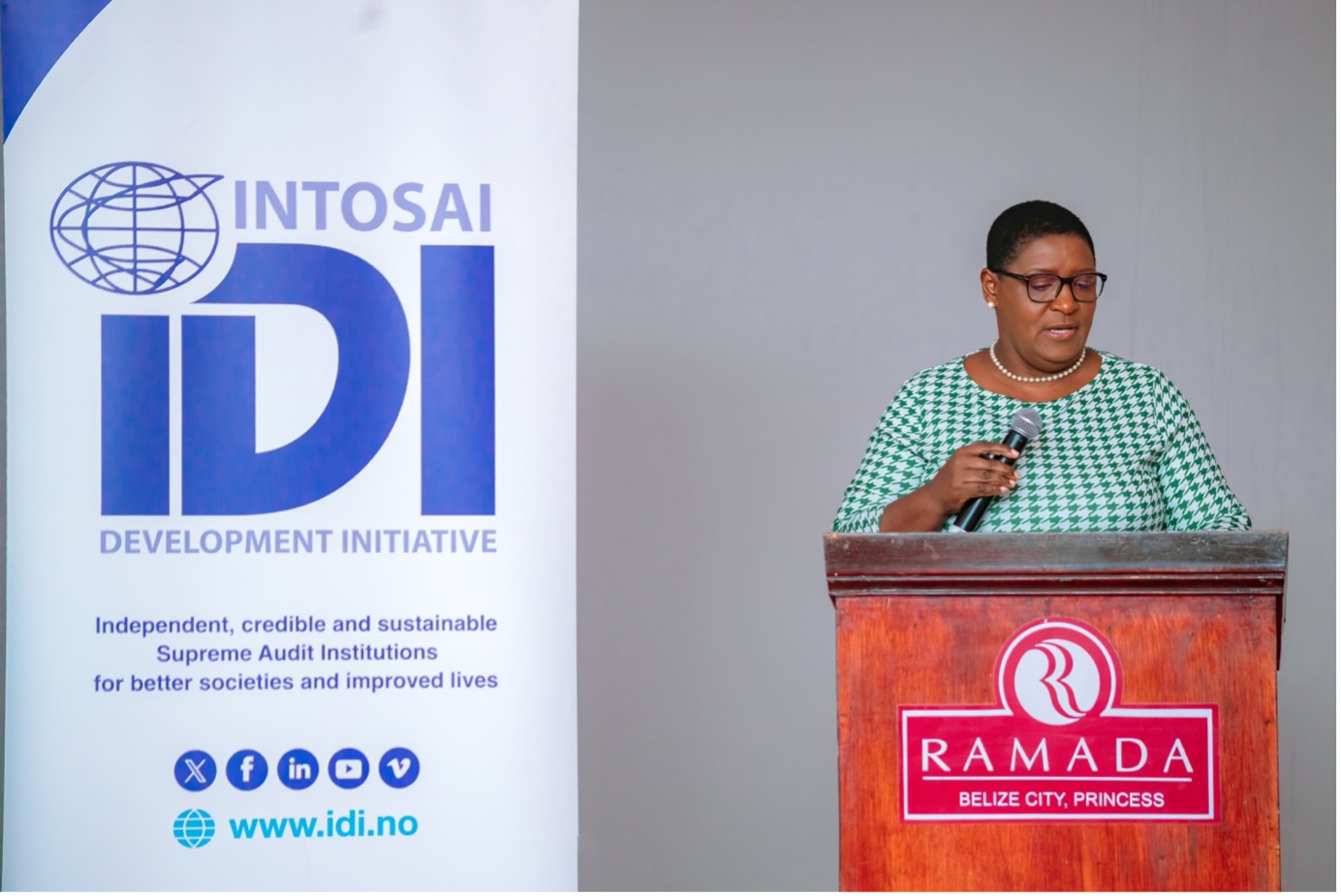
“Peer support in GSAI isn’t just about sharing knowledge — it’s about sharing responsibility and lifting each other up,” said Anne Marie George of SAI Dominica. “That has made a lasting impression on us.”
These relationships are the cornerstone of GSAI. The initiative connects SAIs from across the globe to foster mutual learning, long-term mentorship, and hands-on support tailored to each SAI’s context. And the results are showing.
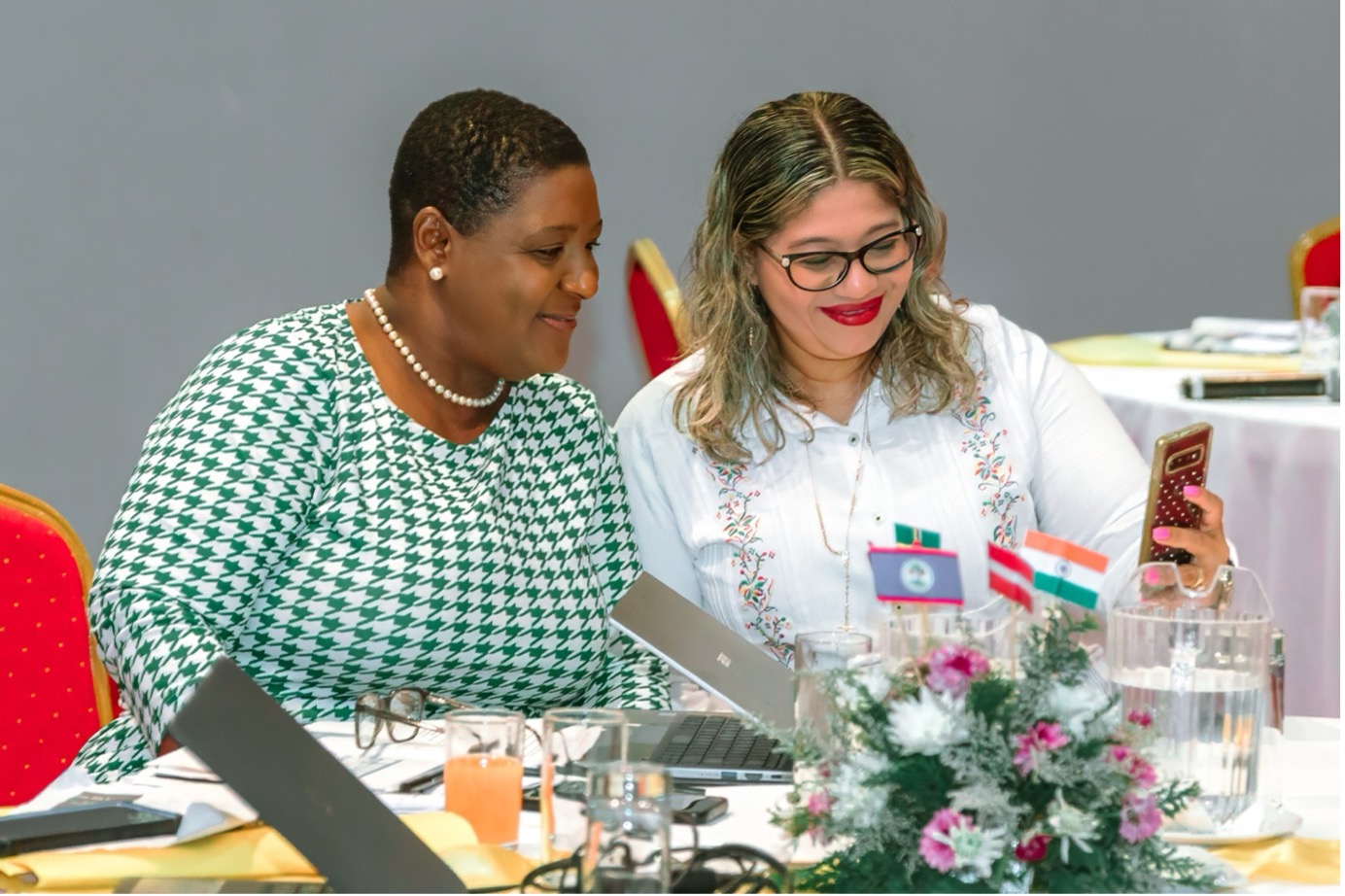
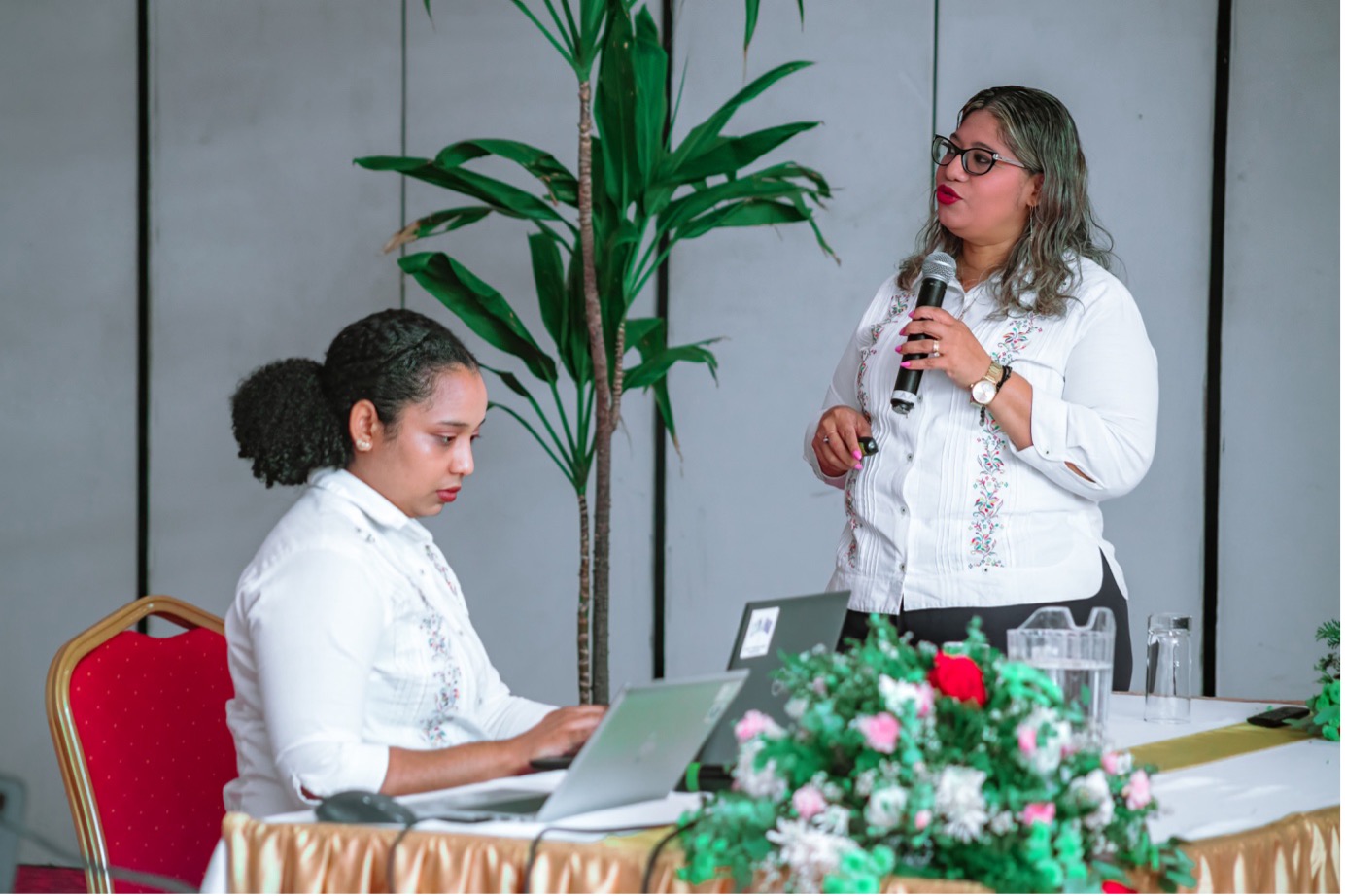
“Through the initiative, we have been in the process of customising our audit manuals and working papers, which will further standardise our audit processes — it’s a big step forward for consistency and quality,” shared Maria Rodriguez, Auditor General of Belize. She emphasised that thanks to GSAI important updates and stakeholder engagement had begun, stating, “We’ve aligned over 80% of our audit work with international standards, and we’ve taken bold new steps, like initiating donor collaboration, for the first time.”
What makes GSAI unique isn’t only its technical depth— it’s the human connection at the heart of its peer-to-peer network. Appreciation of the built-in mentorship and inclusion came up repeatedly in participants’ reflections during the event.
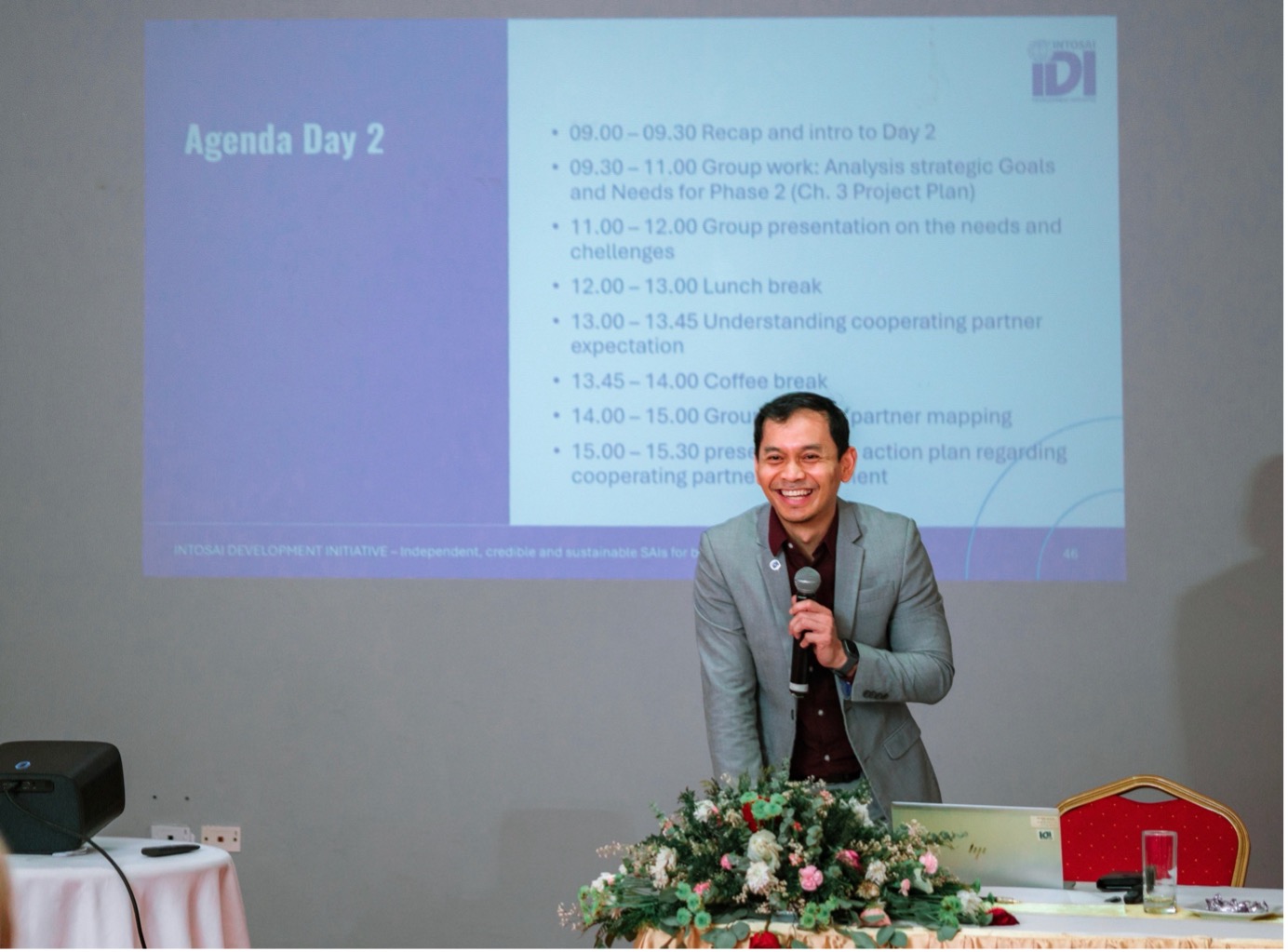
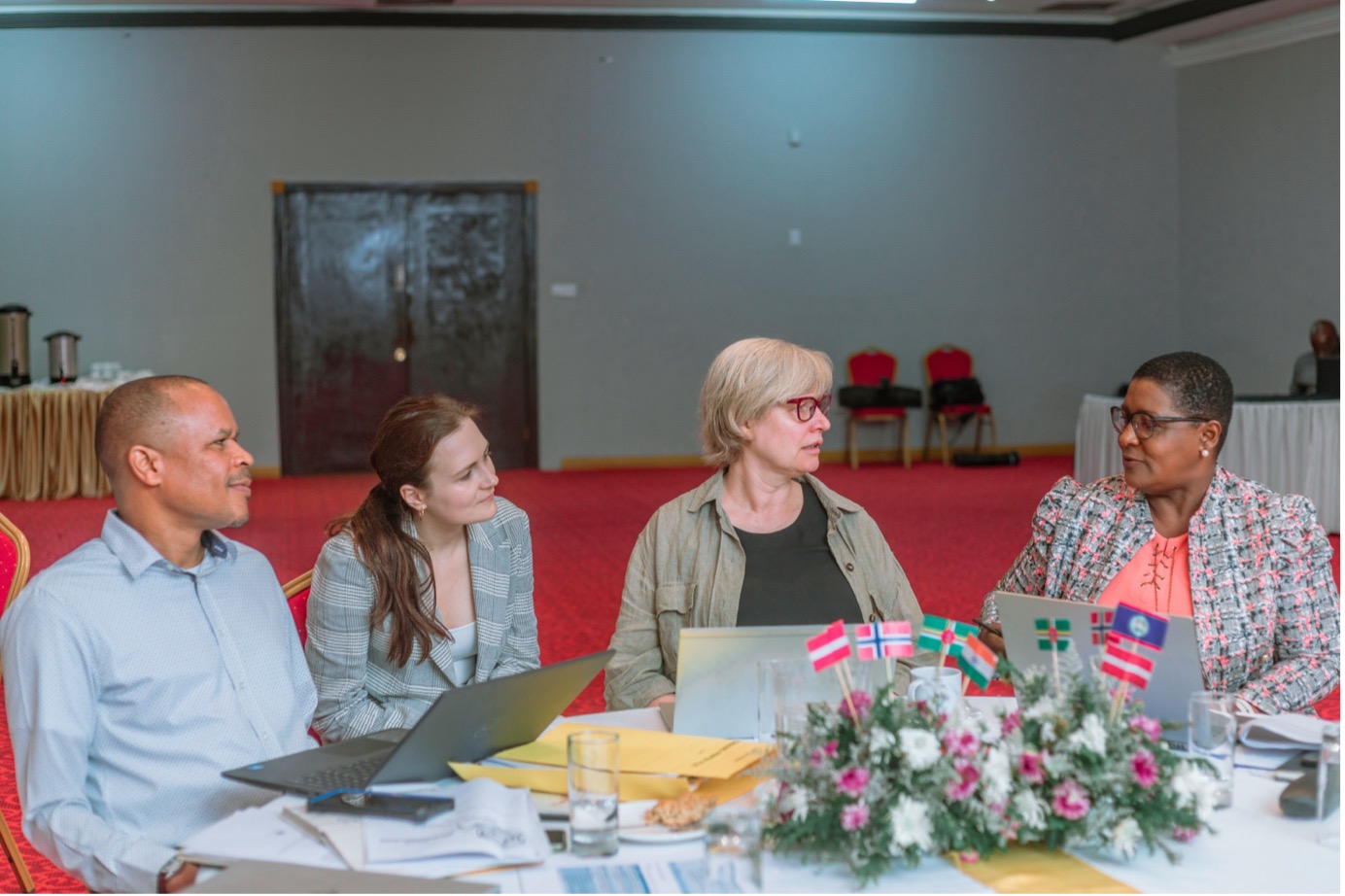
“One of the most powerful parts of our GSAI journey was the mentorship we received from SAI Latvia,” Anne Marie George added. “They didn’t just share technical skills, they welcomed us, included us in their workflow, and showed us the value of inclusivity and ethical leadership. That experience deeply shaped how we work back home.”
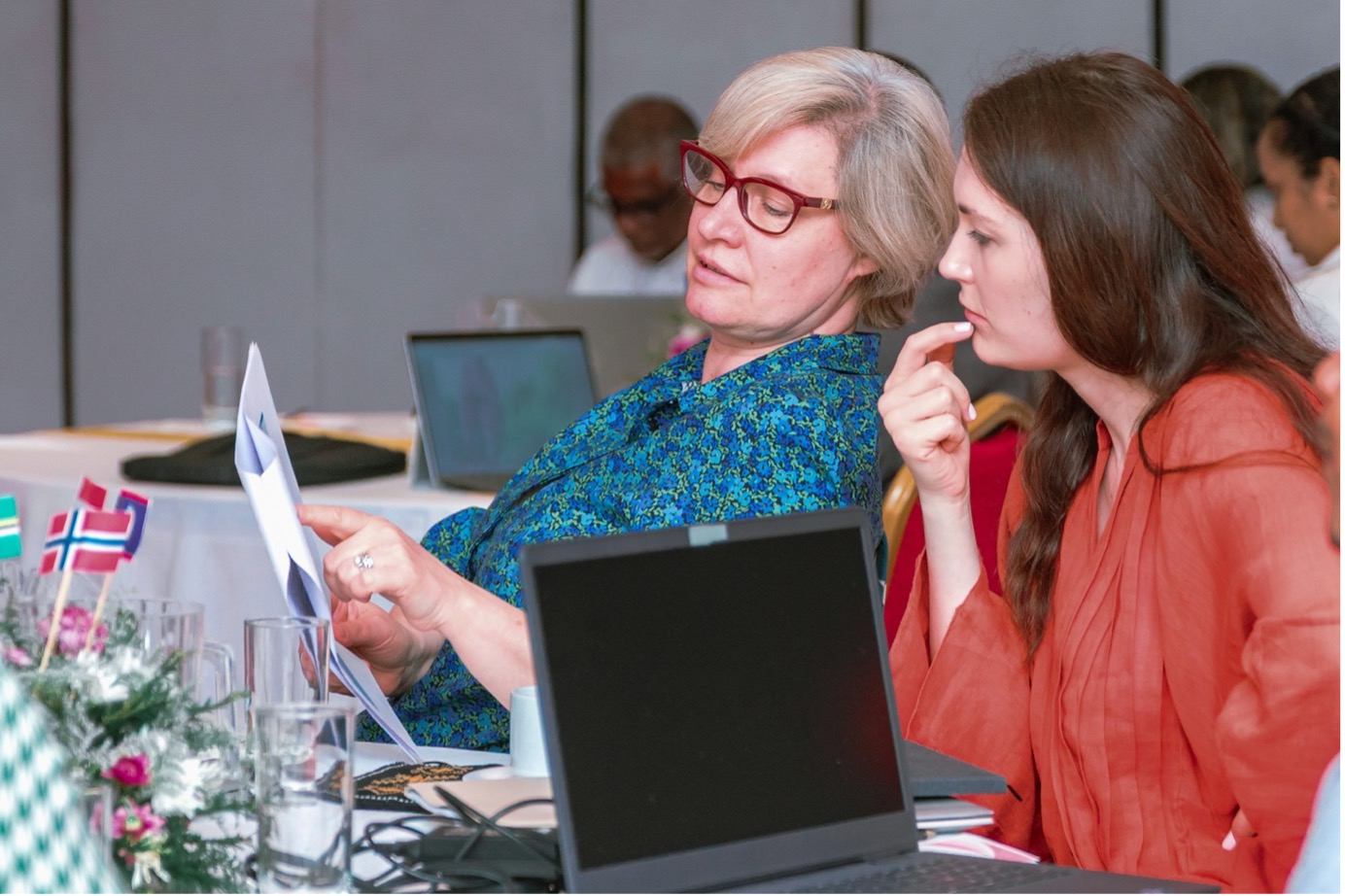
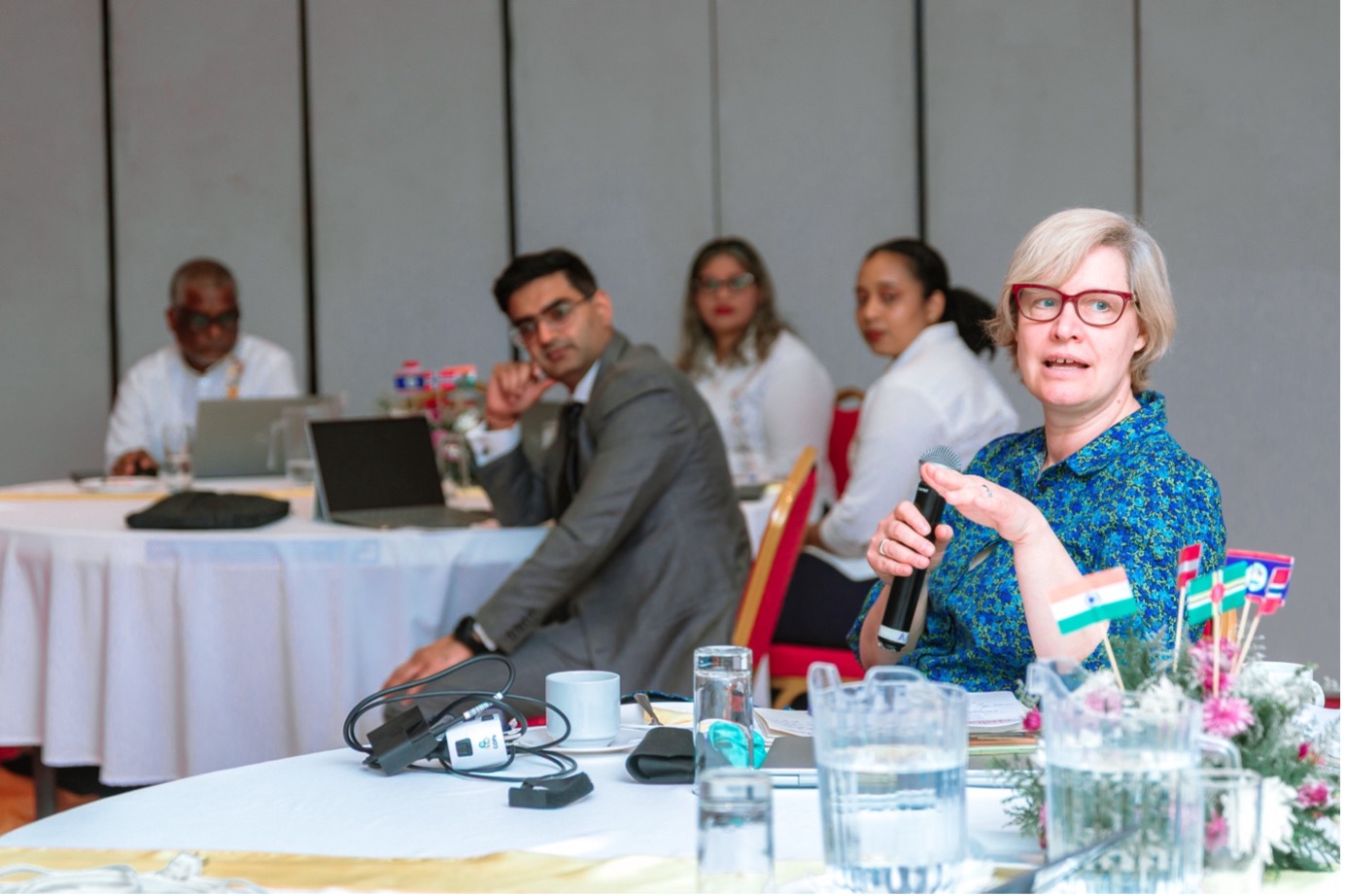
For the peer SAIs, too, the learning was reciprocal. Silvija Nora Kalniņš from SAI Latvia reflected, “Working with an SAI we never expected to collaborate with—so far away yet facing such similar challenges— opened our eyes to new ways of working. It reminded us to be respectful of one another, to appreciate different approaches, and to reflect on how far we’ve come.”
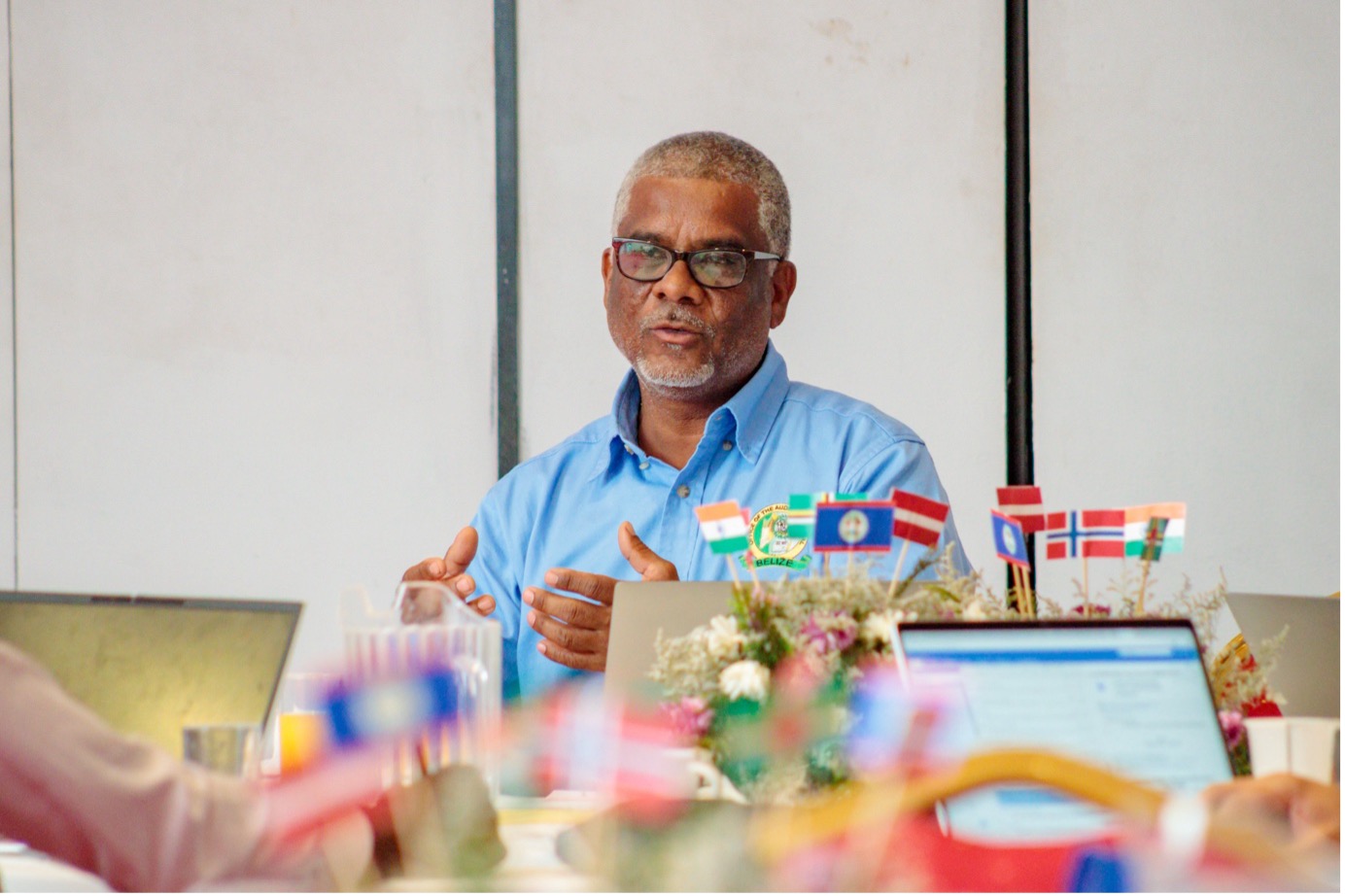
This spirit of solidarity was especially meaningful in a regional context where the impact of these SAIs has been hindered by their limited visibility.
In Belize, the SAI has been unable to publish any audit reports to date. Yet now, with strengthened processes and a new strategic plan under development, the SAI has begun engaging key stakeholders like Parliament and donors while preparing for public outreach.
Run jointly by INTOSAI Development Initiative (IDI) and the INTOSAI Donor Cooperation (IDC), the GSAI programme has empowered SAIs to take ownership of reform, demonstrate relevance, and engage constructively with both citizens and policymakers.
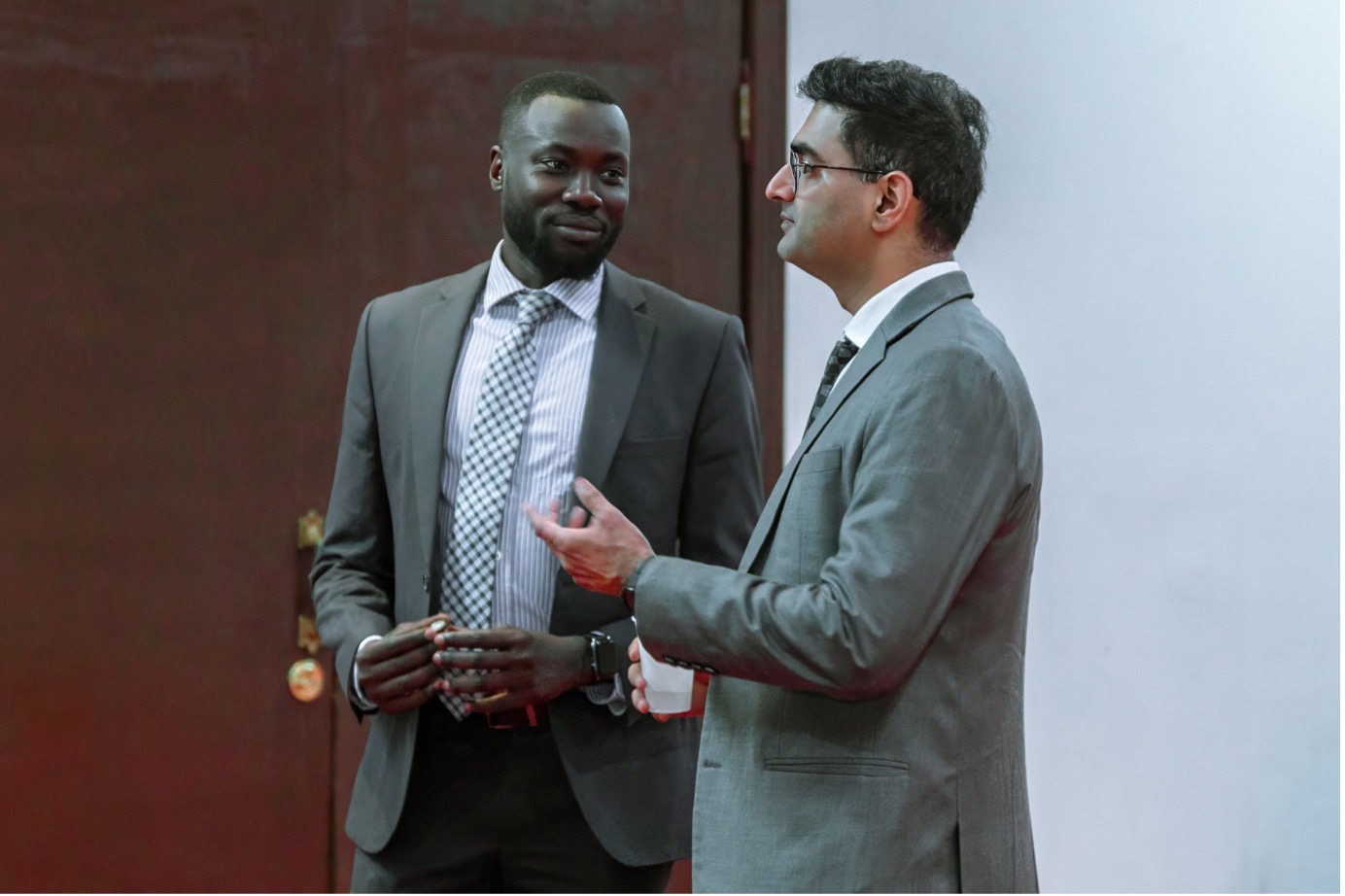
In its second phase, GSAI will not only support technical improvements but also help raise the profile of participating SAIs and strengthen stakeholder engagement. At the workshop, partners such as the World Bank and the US Embassy advocated for increased advocacy efforts to ensure lasting impact. Their message was clear: SAIs must boost the visibility and use of their work, and clearly show how they contribute to good governance and democracy.
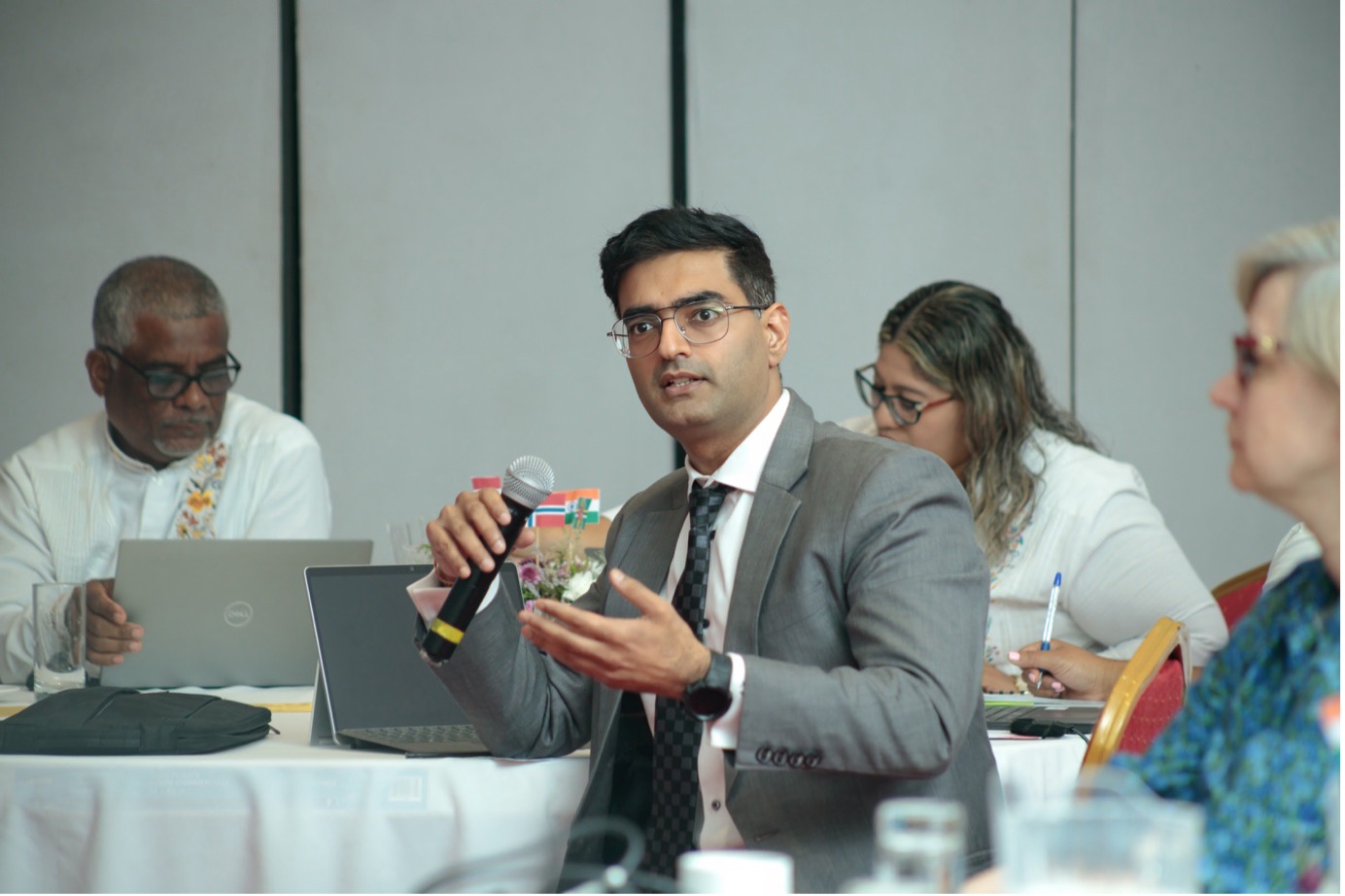
Karan Vora from SAI India, who has been mentoring SAI Belize, shared, “Peer support means learning from how another SAI functions, understanding the different contexts they work in, and helping them overcome those challenges.”
That context sensitivity is part of what makes GSAI so effective. It isn’t a one-size-fits-all solution. It’s a transformative platform that’s rooted in trust, adaptability, and learning from one another.
The Belize Workshop marked the transition from GSAI’s first phase, which focused on laying foundations, to a more ambitious Phase 2 centred on strategic readiness, sustainability, and scale.
Together, SAIs used the workshop as an opportunity to co-develop their Phase 2 plans, align expectations, and take stock of the initiative’s progress with INTOSAI peers.
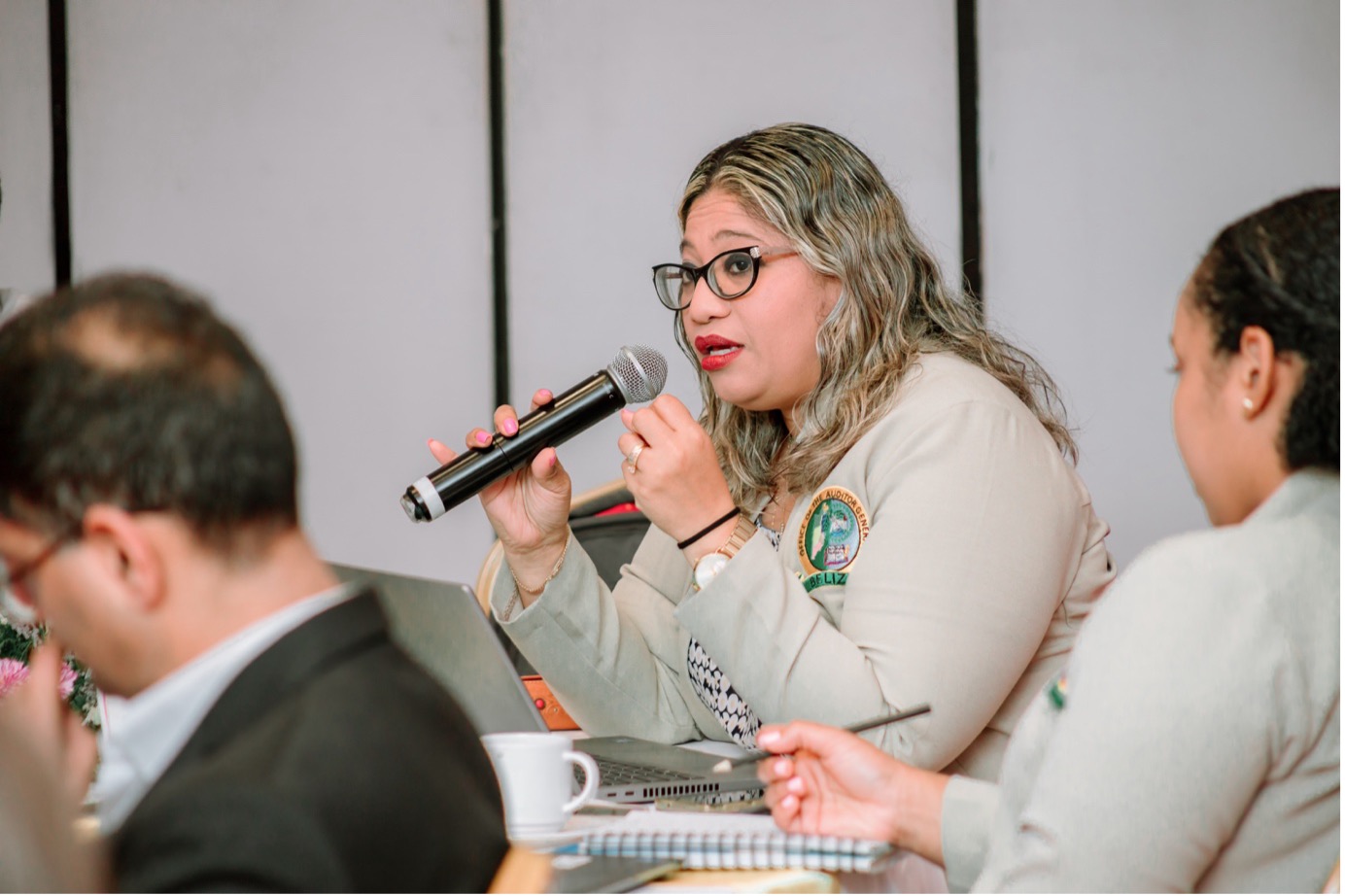
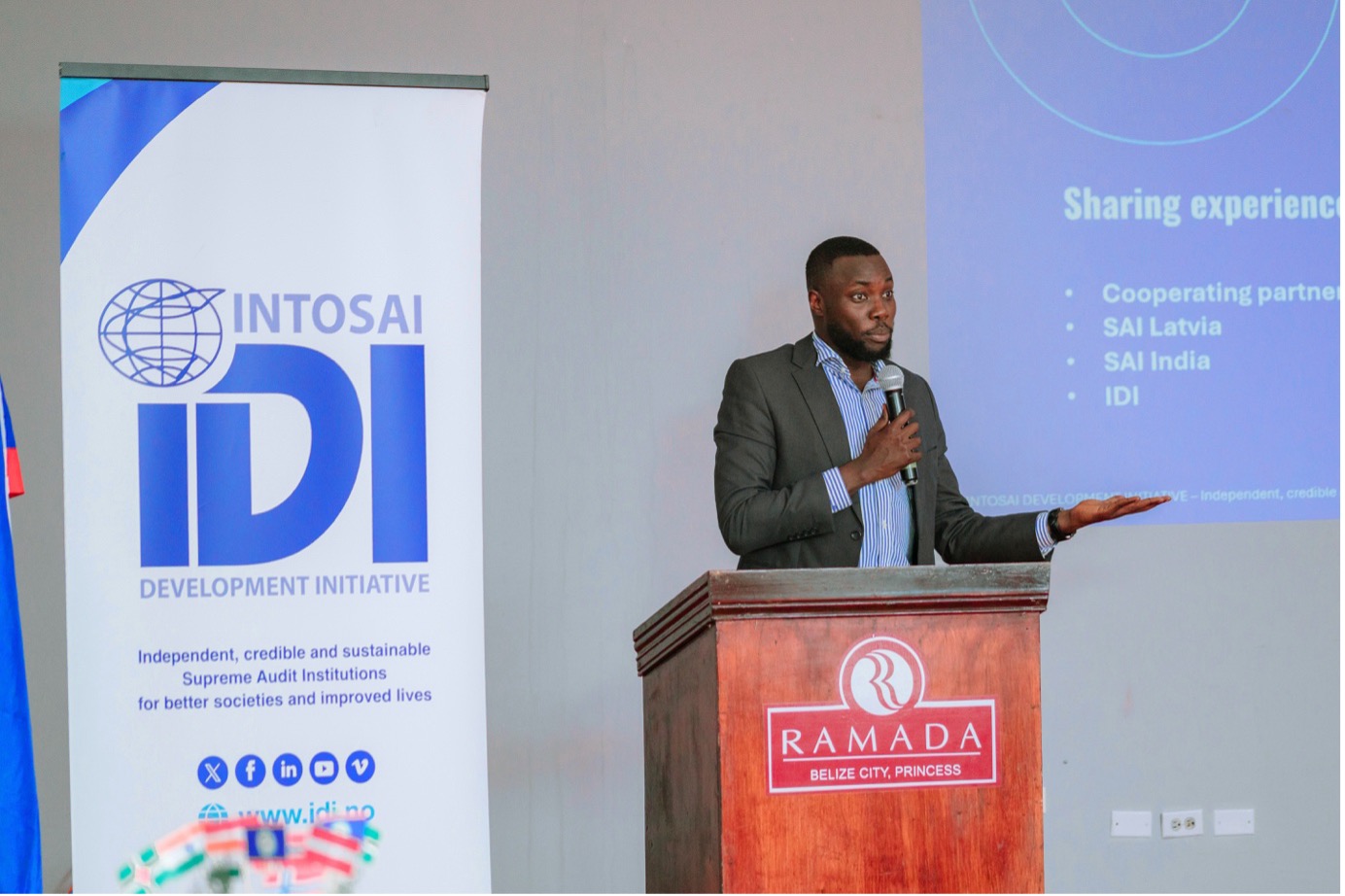
As IDI facilitator and Senior Manager Godwin Matte from IDI’s GSAI programme team noted, “Peer to peer support lies at the heart of the INTOSAI community, and this programme is a strong reflection of that spirit, as shown through the established partnerships between the four SAIs.”
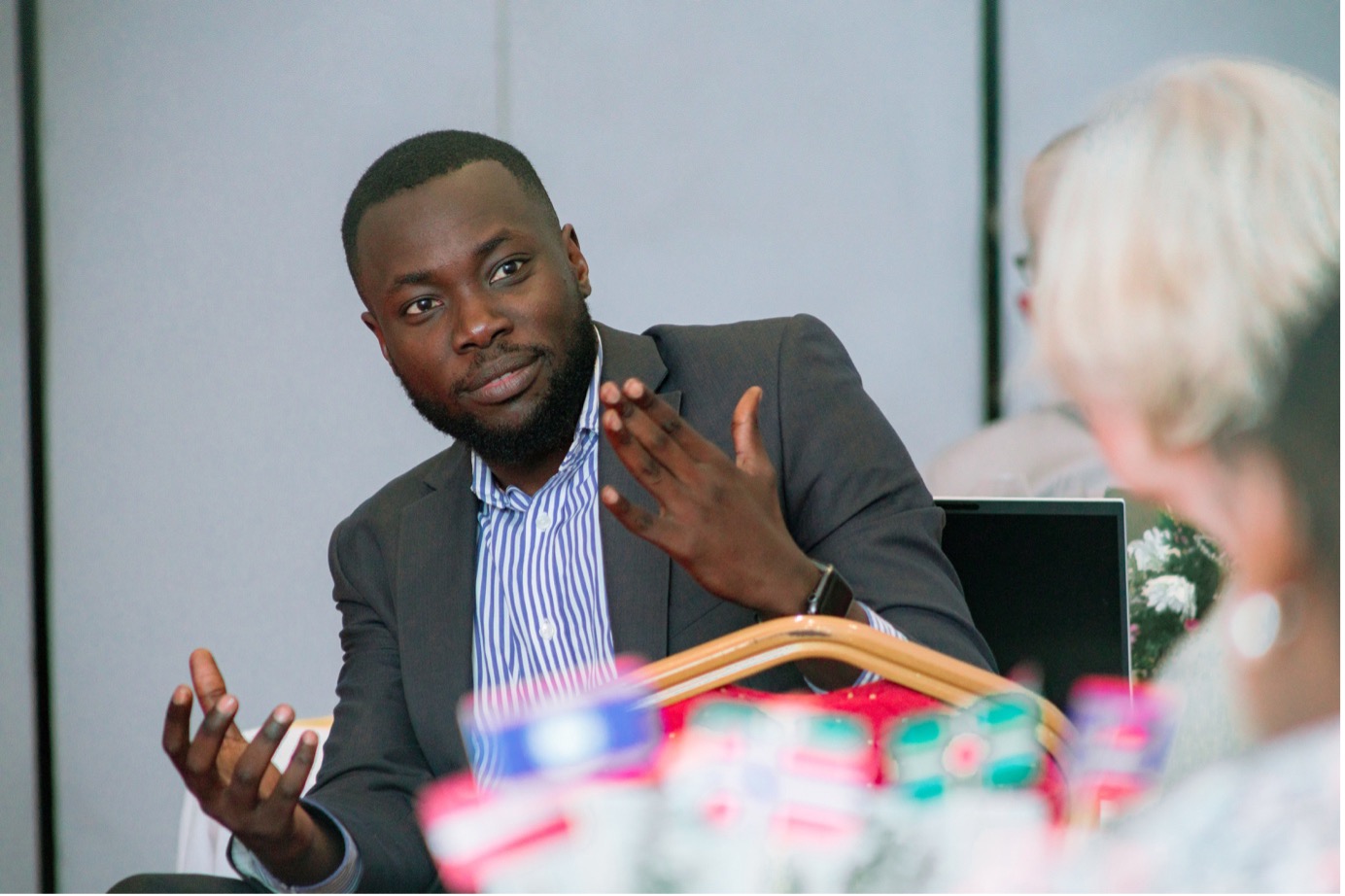
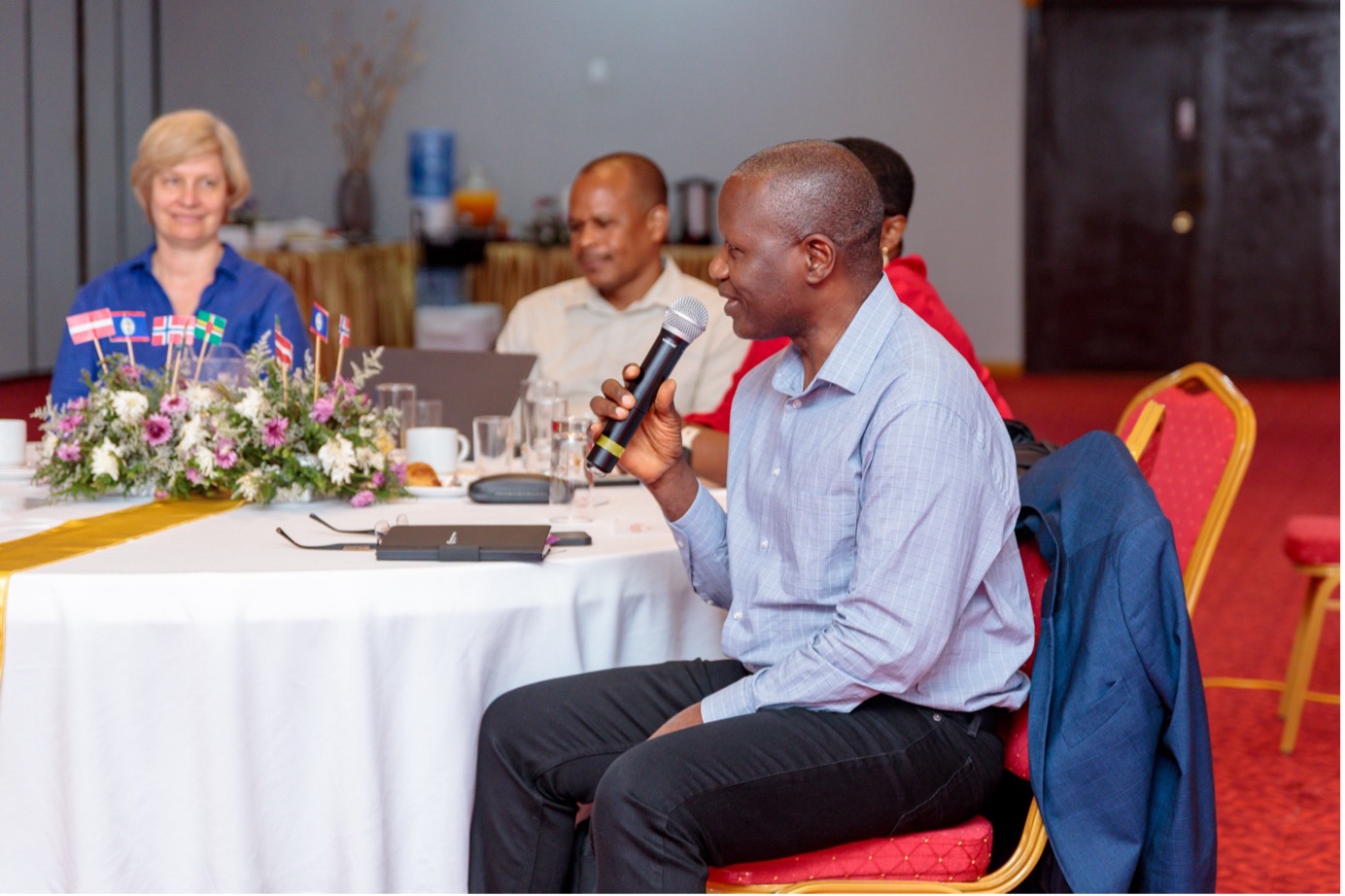
With these plans in motion, SAI Belize and SAI Dominica are not just beneficiaries — they are now active partners working towards better accountability and oversight in the Caribbean region. And as GSAI continues to grow, their stories remind us that even in the most challenging contexts, institutions can evolve, trust can be built, and oversight can become a force for real change.
When the work of SAIs is visible, empowered, and connected, everyone benefits.
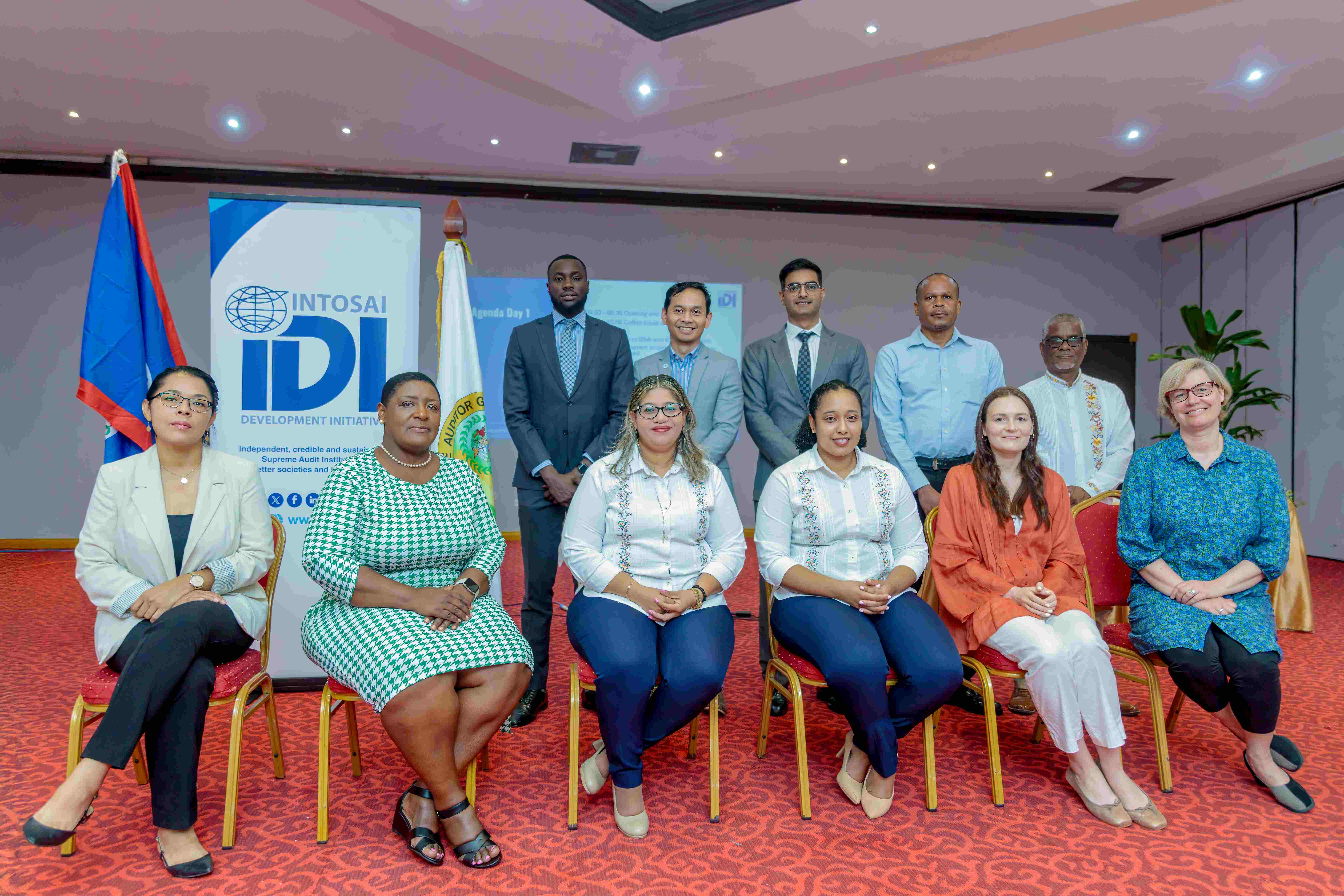
Learn more about this initiative
Résumé de cet article disponible en français au bas de la page.
In today’s volatile global landscape, marked by democratic backsliding and growing calls for accountability, the role of Supreme Audit Institutions (SAIs) is more vital than ever. This is especially true in Sub-Saharan Francophone Africa, where SAI leaders must navigate political complexity, institutional constraints, and rising citizen expectations, all while upholding integrity and oversight.
From 28 to 30 May 2025, Heads of SAIs convened in Senegal for a high-level gathering focused strengthening their leadership skills and adapting to shifting realities. Far from a routine meeting, the event marked the expansion of IDI’s redesigned Mastery Initiative into the Francophone region, following its successful launch earlier this year for English and Spanish-speaking audiences.
Oversight leaders from Benin, Burkina Faso, Burundi, Comoros, Côte d'Ivoire, Djibouti, Senegal, and Chad—members of the Regional Council for Training of Supreme Audit Institutions of Sub-Saharan Francophone Africa (CREFIAF)—came together to exchange ideas, tackle shared challenges, and explore the demands of bold, future-focused leadership. Hosted by the Cour des Comptes of Senegal (SAI Senegal), the Masterclass gave Francophone SAIs a platform to take centre stage.
In Francophone Sub-Saharan Africa, where governance challenges reflect shared history and institutions, peer collaboration is vital for stronger public oversight. As participants arrived in Dakar for the Leading in a Global Context Masterclass, a sense of familiarity grew—from past exchanges and the common challenges uniting them.
The Masterclass brought together a distinguished group of high-level leaders and experts, reflecting IDI’s strong strategic relationships across the public oversight and development community. Present were regional leaders representing the West African Economic and Monetary Union (UEMOA) and the Secretariat of CREFIAF, whose participation reinforced the collaborative spirit driving progress in Francophone Africa.
Additionally, panellists from institutions such as the World Bank, International Monetary Fund, European Investment Bank, European Court of Auditors, and the International Budget Partnership Senegal guided and enriched discussions throughout the event.
Their insights underscored a key reality: while national contexts differ, both threats and solutions cross borders.
SAI leaders also play a critical role in upholding transparency and accountability in such complex environments. Opening the event, Mamadou Faye, First President of SAI Senegal, emphasised the importance of this engagement, saying: “This is a unique platform for peer learning amongst SAI leaders in the region, who often face similar institutional and organisational challenges.”
To enhance CREFIAF’s leadership capacity, the event’s success depended on vital international support made possible by the Swiss State Secretariat for Economic Affairs (SECO).
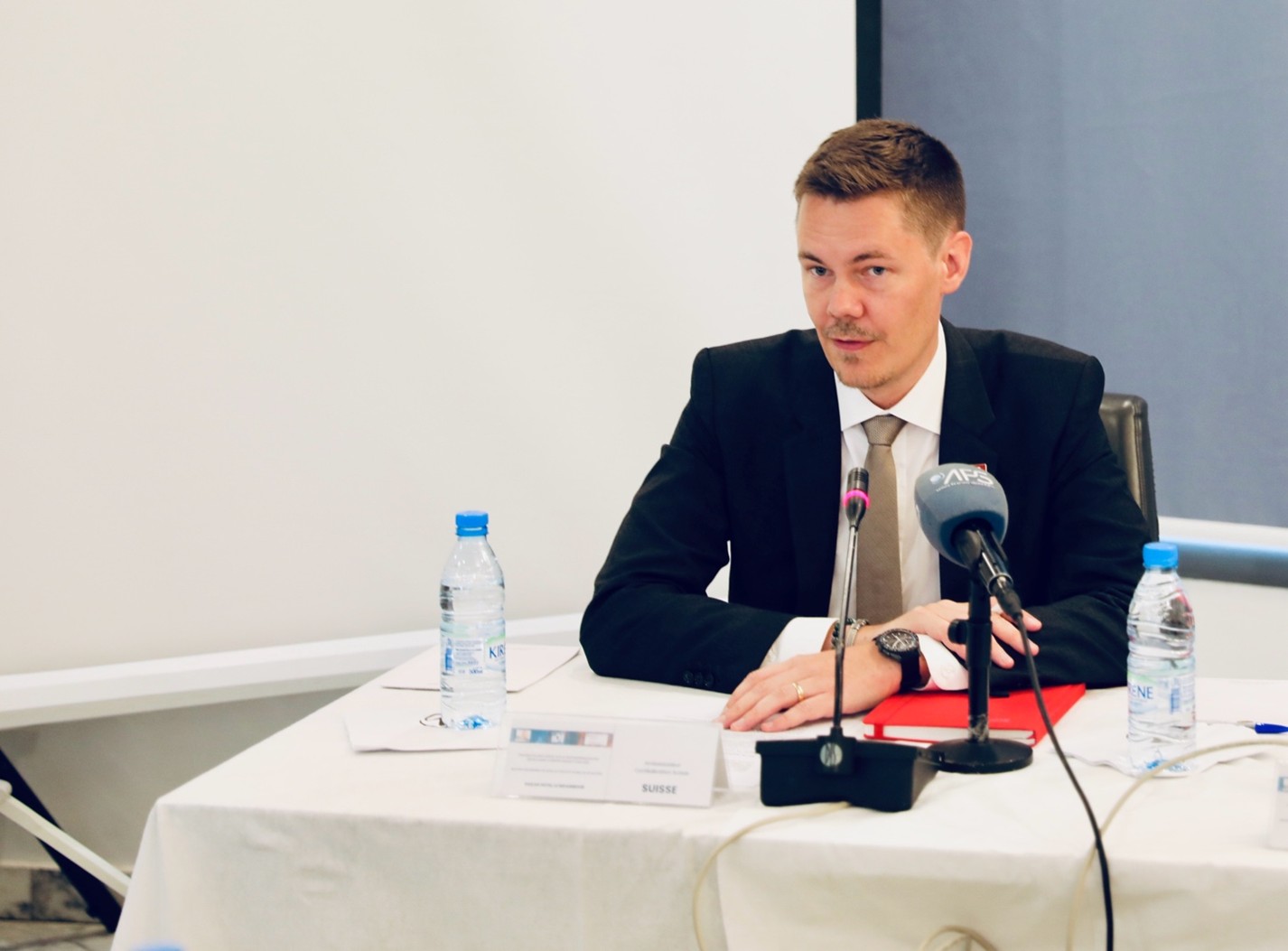
Representing Switzerland, Pablo Padrut, Chargé d’Affaires a.i. at the Swiss Embassy in Senegal, reaffirmed this commitment: “Switzerland proudly supports strengthening SAIs and their leaders, who are essential to safeguarding public resources and reinforcing public trust.”
In today’s climate of growing public doubt, institutions face a crisis of trust. SAIs are among the few that still hold credibility, but that trust cannot be taken for granted.
To meet this challenge, leadership must evolve.
But what does it mean to lead globally when your mandate is grounded nationally? For these SAI heads, it meant reimagining leadership itself by looking beyond domestic boundaries to engage with regional realities and global trends.
Throughout the week, a range of expert speakers and facilitators offered fresh perspectives that challenged participants to reflect critically on their leadership roles. Topics like corruption, political instability, and slow-paced reform were not abstract concepts—they were lived realities for many in the room prompting candid, engaging and thought-provoking discussions. Sharing these experiences created space for genuine connection, grounded in mutual understanding and professional solidarity.
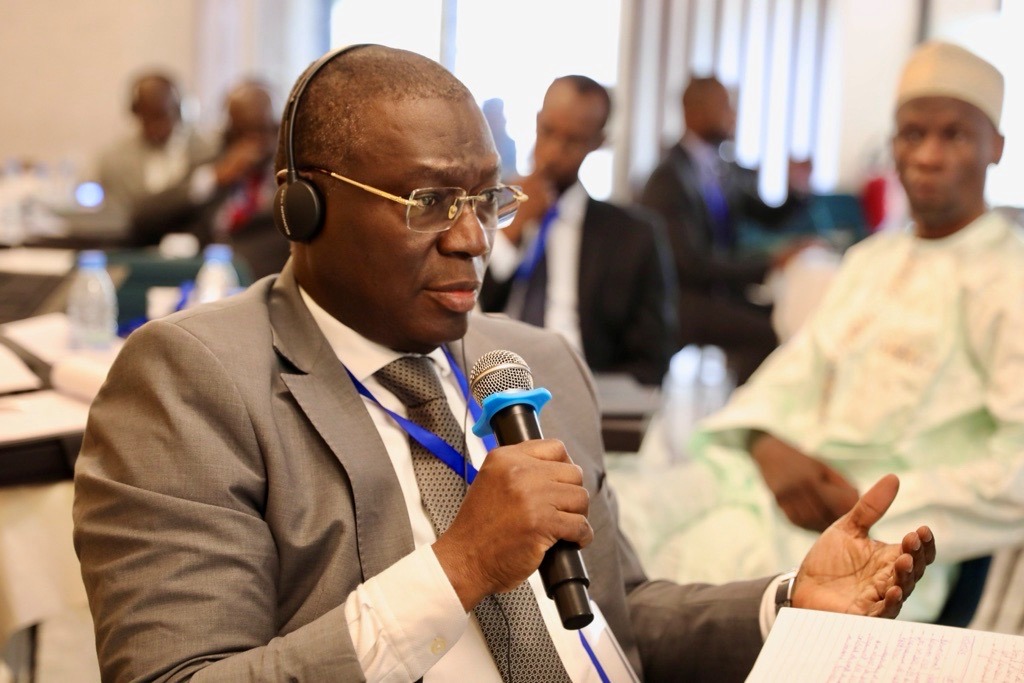
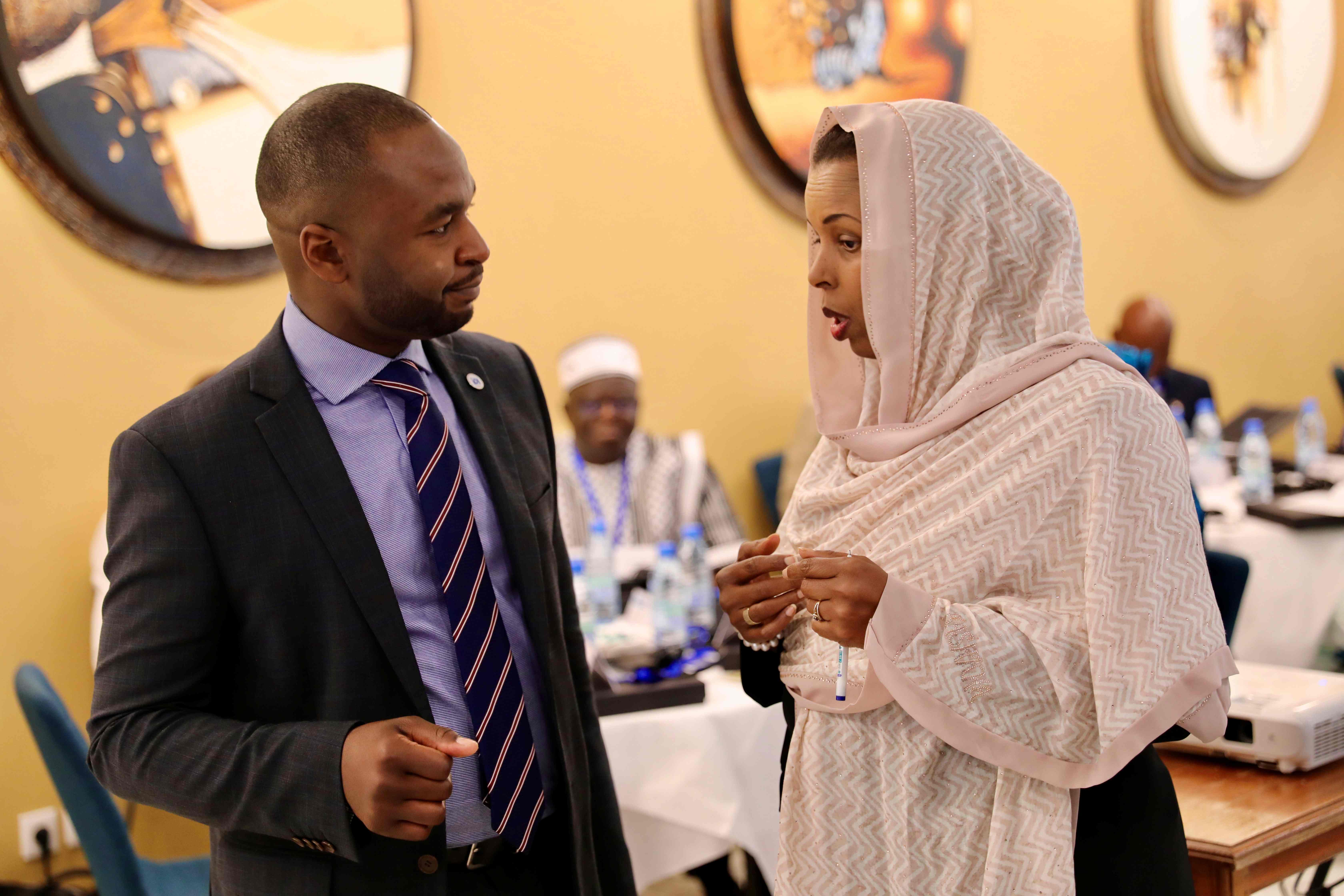
Ismahan Mahamoud, First President of the Court of Accounts of Djibouti (SAI Djibouti) and Chair of CREFIAF, confirmed the importance of this dialogue, saying: “The issues tackled during the Masterclass and the perspectives shared among heads of SAIs will equip us with precious insights in our roles as defenders of accountability.”
As conversations deepened, broader questions emerged about key topics for SAIs in the region: digitalisation, citizen engagement, and public trust.
Digital Transformation Expert and former representative from the European Court of Auditors, Magdalena Cordero, addressed the need for institutional adaptation head-on. A long-time contributor to public sector digital reform efforts, she identified the perceived tension between transformation and tradition.
Rather than calling for a disruptive revolution, she emphasised that digital transformation for SAIs should be about pragmatic adaptation— meaning, meeting institutions where they are and building their capacity in context-sensitive ways.
Participants also engaged with expert thought leadership from outside the SAI community, including insightful presentations from the World Bank and the International Budget Partnership (IBP). On the topic of citizen engagement, Aissatou Diop, Manager of IBP Senegal’s Public Policy Department, emphasised rising public demand for transparency.
While many SAI leaders in the CREFIAF region remain cautious about partnering with civil society due to political pressures and institutional sensitivities, IBP encouraged a shift in perspective. Importantly, civil society should be seen not as a threat, but as a strategic ally—one that can amplify oversight and strengthen public confidence when engagement is approached thoughtfully.
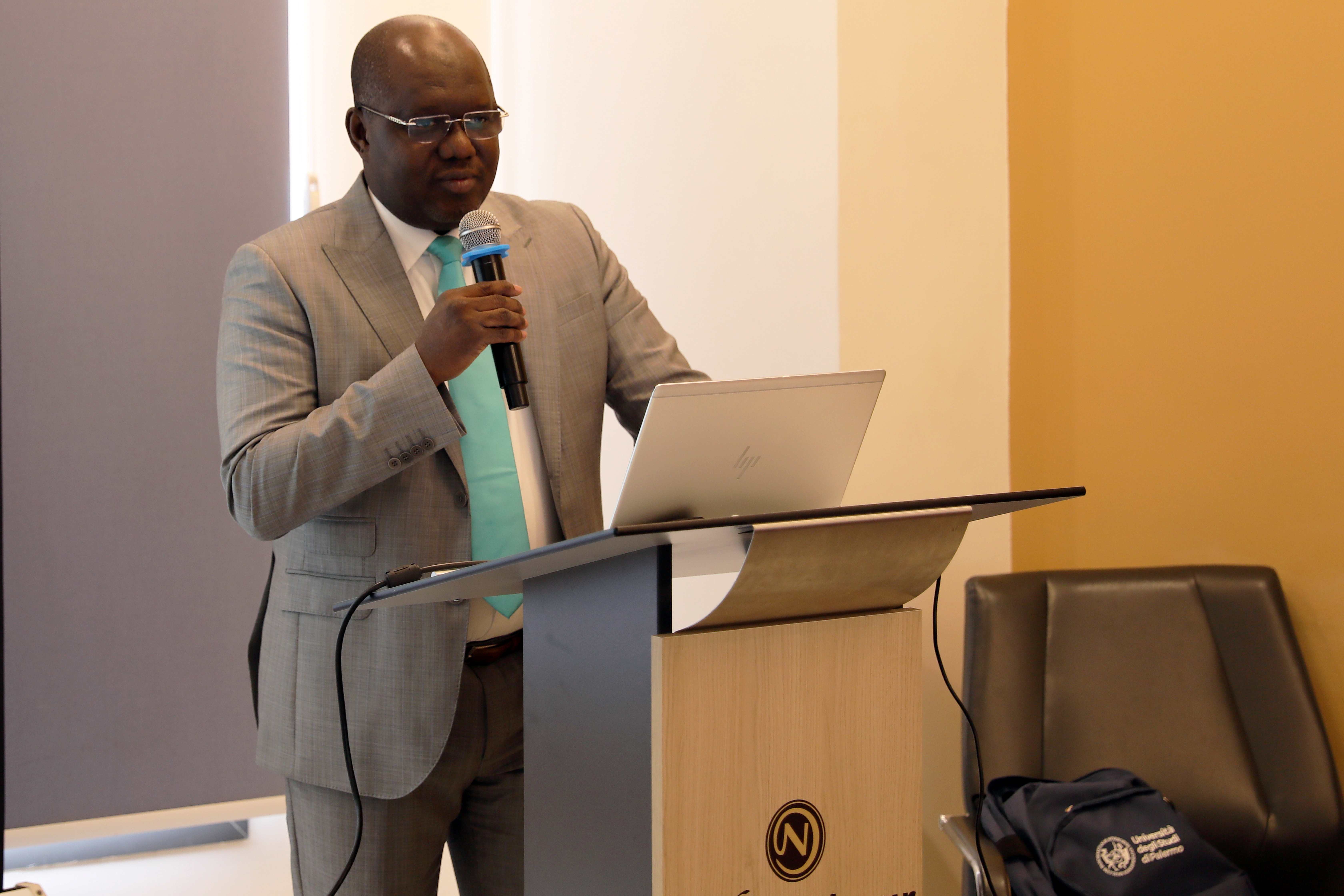
Additionally, in a region where trust in public institutions is fragile, SAIs remain one of the few oversight bodies still seen as credible by the public. Drawing on two decades of governance data across Sub-Saharan Africa, Saidou Diop, Lead, Public Sector- Western and Central Africa, from the World Bank offered a broader regional perspective.
To strengthen institutional trust, SAIs, particularly in Francophone Africa, must continue investing in performance, leadership, and resilience. From managing public debt to ensuring accountability in how public funds are used, capable and trusted SAIs are essential to tackling both long-standing development issues and emerging global risks.
Facilitating the Masterclass were INTOSAI Development Initiative (IDI)’s Senior Managers, Alain Memvuh, Eduardo Ruiz Garcia, and Abdelhakim Ben Lazreg. With their vast experience from capacity development and public financial management, they helped participants navigate complex issues and reflect on their leadership roles.
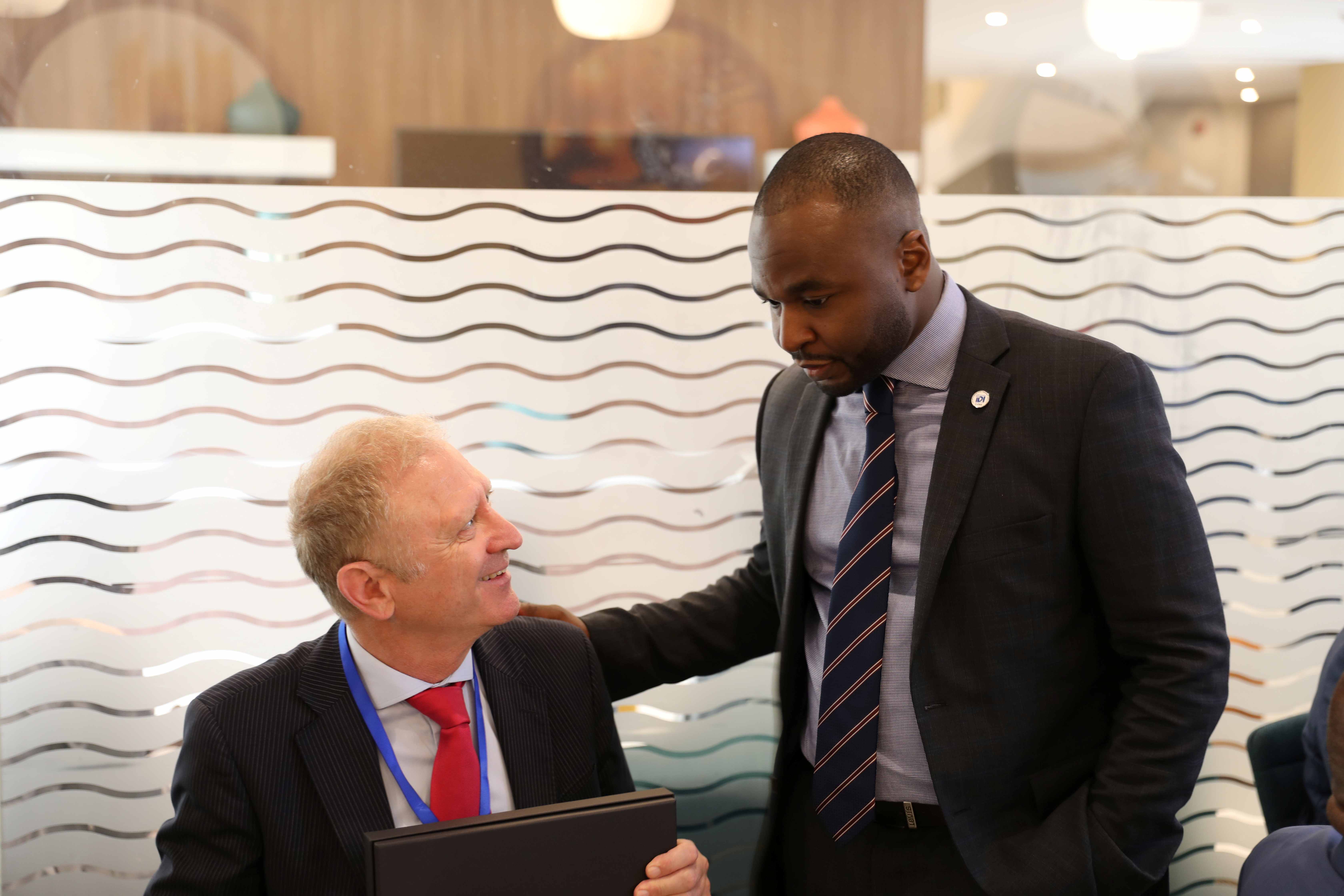
Unique to the Masterclass experience, their professional backgrounds from working directly within or with Francophone SAIs from the Sub-Saharan region, enabled them to insightfully address many of the shared challenges and solutions at hand.
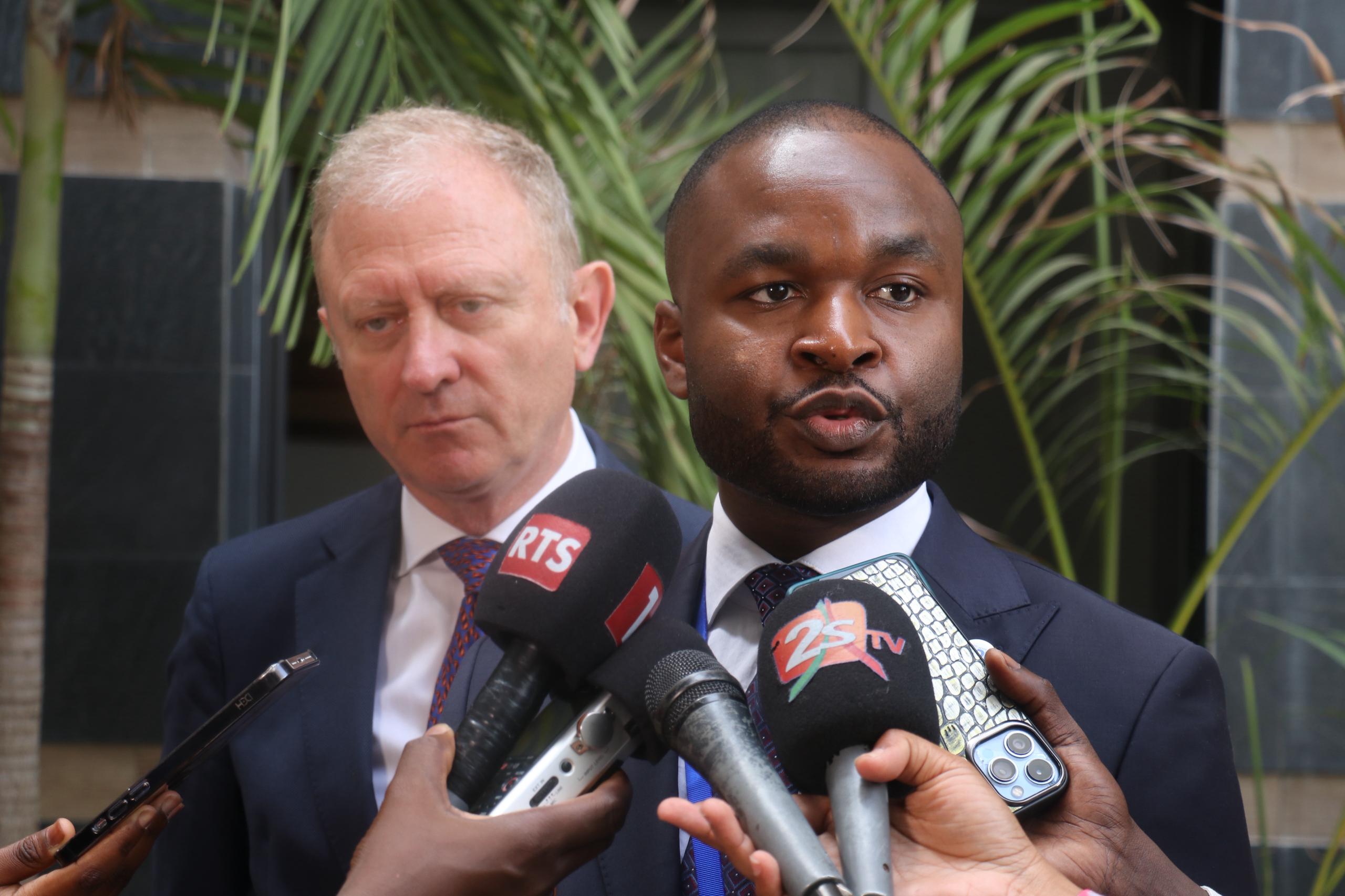
As CREFIAF Regional Manager at IDI, Alain Memvuh shared: “This Masterclass was not just about knowledge-sharing—it was about empowering leaders to think critically, act strategically, and drive meaningful change within their institutions and beyond.”
Combining regional and global expertise, these expert-led conversations are the heart of IDI’s Mastery Initiative. Going beyond theory, the topics discussed reflect the core demands of leadership today. Particularly for SAI leaders in complex settings, success requires more than maintaining the status quo. The Masterclass challenged participants from the region to rethink not just the institutions they lead, but how they lead them in a constantly changing world.
This Masterclass was just the beginning for Francophone leaders looking for inspiration. As the event ended, the energy in the room was palpable. Participants left not just with new ideas, but a renewed sense of direction and a network for further collaboration.
In a time when trust in public institutions is increasingly fragile, the commitment of these SAI leaders to strengthening accountability, embracing innovation, and adapting to new challenges may well be one of the region’s most valuable assets.
Having experienced the power of Mastery’s specialised dialogue and peer learning, Kanvaly Diomande, President of the Court of Accounts of Côte d'Ivoire (SAI Côte d'Ivoire) said: “The greatest benefit of the Masterclass approach is that it brings us, as SAI leaders, together to openly share our personal experiences. We were grateful to IDI for creating such a vital platform.”
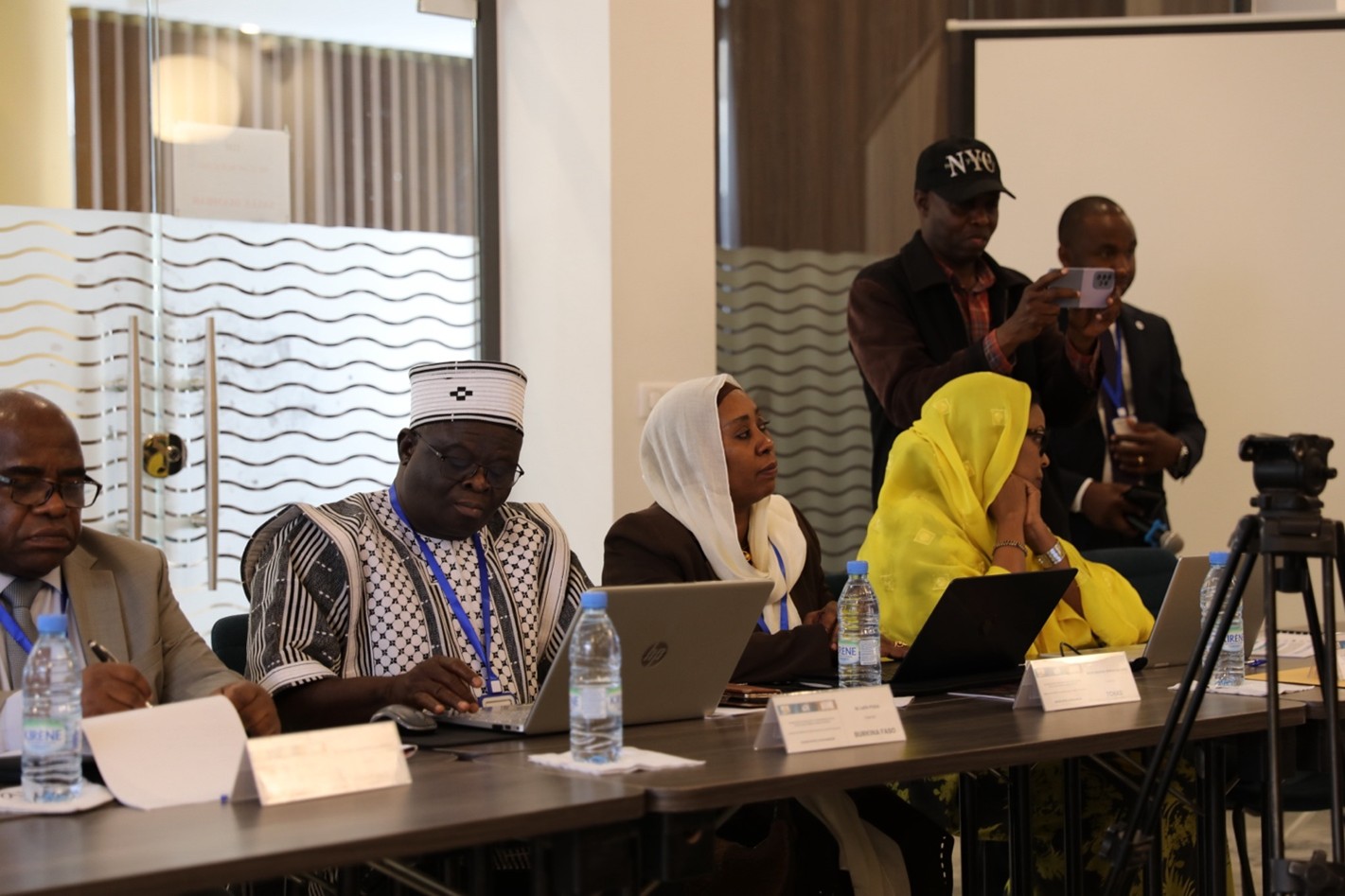
IDI is already preparing a follow-up Masterclass for CREFIAF SAI heads, this time focusing on Leading Institutional Change. If leadership in a global context is about vision, then institutional change is about action: turning ideas into impact.
Are you leading a Supreme Audit Institution? With upcoming events in Spanish, English, Arabic and French, learn more about how you can join our next event.
Pendant trois jours à Dakar, les dirigeants des ISC membres du CREFIAF ont partagé leurs expériences et exploré ensemble les défis du leadership stratégique. Cette Masterclass a permis d’enrichir la vision collective, de renforcer les capacités, et de bâtir des alliances pour une gouvernance publique plus transparente.
Resumen disponible de este artículo en español al final de la página.
Supreme Audit Institutions (SAIs) are essential pillars of democratic governance. They serve the public by overseeing how governments use resources, safeguarding transparency, and ensuring accountability. However, when SAIs face political or legal interference, their ability to act in the public interest can be seriously undermined.
In a newly published, “Assessment Report on the Allegations of Infringements to the Independence of the Office of the Comptroller General of Costa Rica”, the INTOSAI Development Initiative (IDI) outlines growing concerns about the independence of Costa Rica’s SAI, the Office of the Comptroller General (CGR). This report follows IDI’s standardised SAI Independence Rapid Advocacy Mechanism (SIRAM) approach – a tool designed to proactively respond to threats against the independence of SAIs, using international benchmarks such as the INTOSAI Mexico Declaration on SAI Independence.
The report presents an in-depth, evidence-based assessment of both legal and practical threats to the CGR’s ability to fulfil its mandate. It documents two key areas of concern:
While some of these proposals have been withdrawn or declared unconstitutional, ongoing legislative initiatives continue to pose a risk. IDI collected evidence showing that these reforms appear incoherent and threaten to weaken the CGR’s legal foundation and operational scope.
Both forms of interference—executive and legislative—constitute violations and corresponding threats to Principle 3 of the Mexico Declaration, which states that SAIs must be free from external influence in carrying out their audit mandate.
If left unaddressed, these developments may weaken Costa Rica’s system of public financial oversight, diminishing institutional checks and balances in a time of increasing global concern about democratic backsliding.
The report recommends that:
• The Executive Branch cease public and operational interference in the CGR’s audit work
• Any legislative reforms affecting the CGR should be developed through open, inclusive, and participatory processes that involve the SAI and other key stakeholders
• Reforms should align with international good practices and standards, especially those articulated by the INTOSAI community
These steps are vital to safeguarding the CGR’s independence, thereby reinforcing trust in Costa Rica’s accountability institutions and democratic processes.
This report is part of IDI’s unique SIRAM approach, which features advocacy and assessment tools for broader outreach. This effort aims to ensure that SAIs remain independent watchdogs of public finance, especially in contexts where institutions are under attack. As oversight institutions around the world face increasing pressure, SIRAM provides a vital way to raise the alarm, assess threats, and recommend actionable solutions.
By issuing this report, IDI invites the international community to take these concerns seriously and to continue to stand behind oversight institutions that uphold transparency and accountability.
Click here to read the full SIRAM Report on Costa Rica in English
Haga clic aquí para leer el Informe SIRAM completo sobre Costa Rica en español
Learn more about IDI’s SIRAM Mechanism and SAI independence
For more information about past threats to SAIs, explore IDI's previous SIRAM reports and statements
Nuevo informe SIRAM revela presiones crecientes sobre la independencia de la Contraloría General de Costa Rica.
El informe recién publicado por la IDI evalúa las amenazas a la independencia de la Contraloría General de la República (CGR) en Costa Rica. Utilizando el Mecanismo de Defensa Rápida de la Independencia de las EFS (SIRAM, por sus siglas en inglés), el informe identifica dos preocupaciones principales: la interferencia del Poder Ejecutivo mediante acusaciones públicas a la CGR y obstáculos operativos a las labores de control, y propuestas legislativas que podrían debilitar el marco jurídico de la CGR.
Ambas situaciones constituyen infracciones y amenazas, respectivamente, al Principio 3 de la Declaración de México de INTOSAI, que garantiza que las Entidades Fiscalizadoras Superiores (EFS) actúen sin influencias externas. El informe recomienda que el Poder Ejecutivo cese la interferencia en la EFS de Costa Rica y que cualquier reforma de su marco legal se lleve a cabo mediante un proceso inclusivo que respete los principios internacionales de independencia.
Este informe es un llamado a fortalecer las instituciones de control en un contexto de creciente presión sobre la democracia y la rendición de cuentas en todo el mundo.
Equal Futures Audit
Equal Futures Audit (EFA)